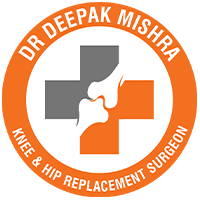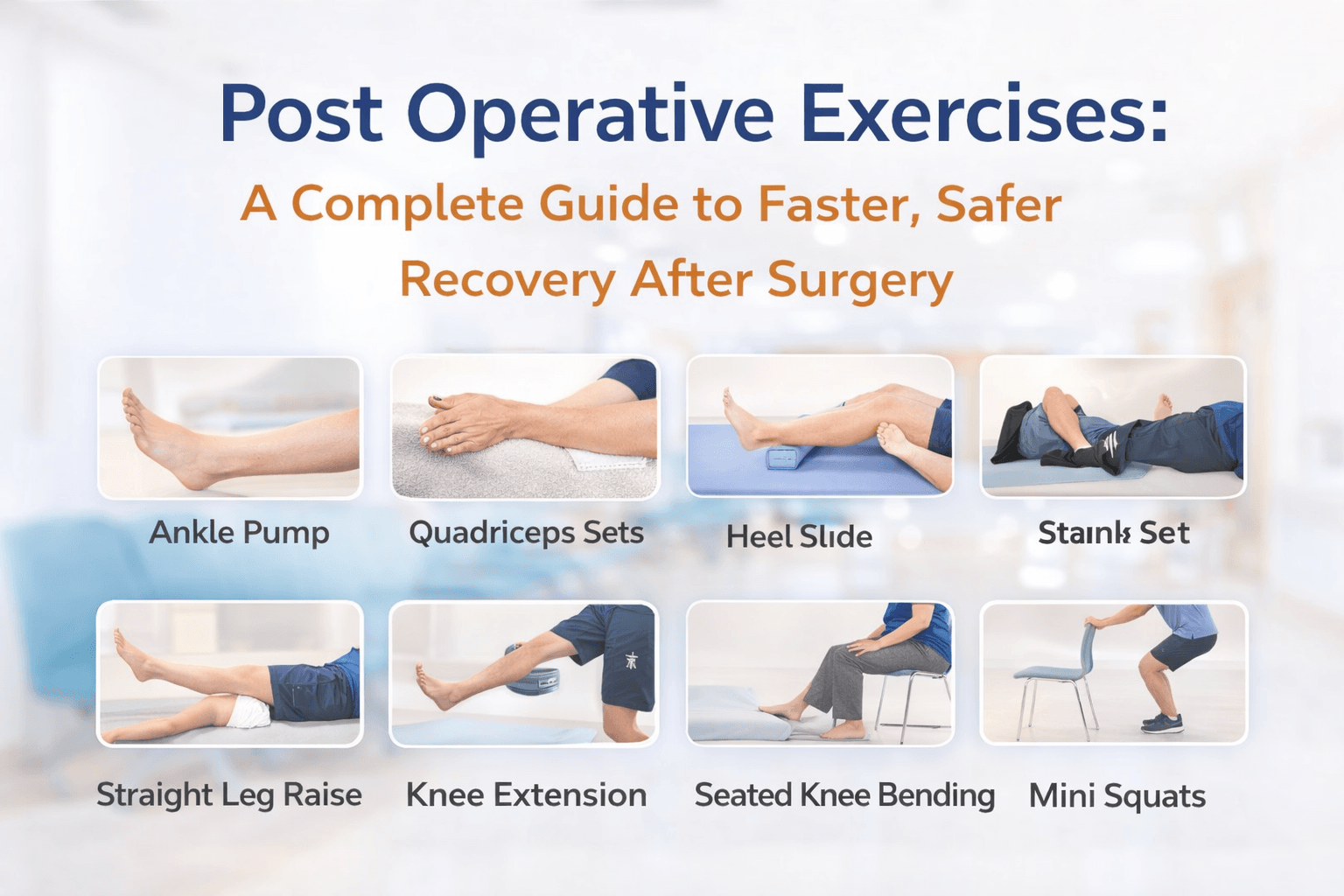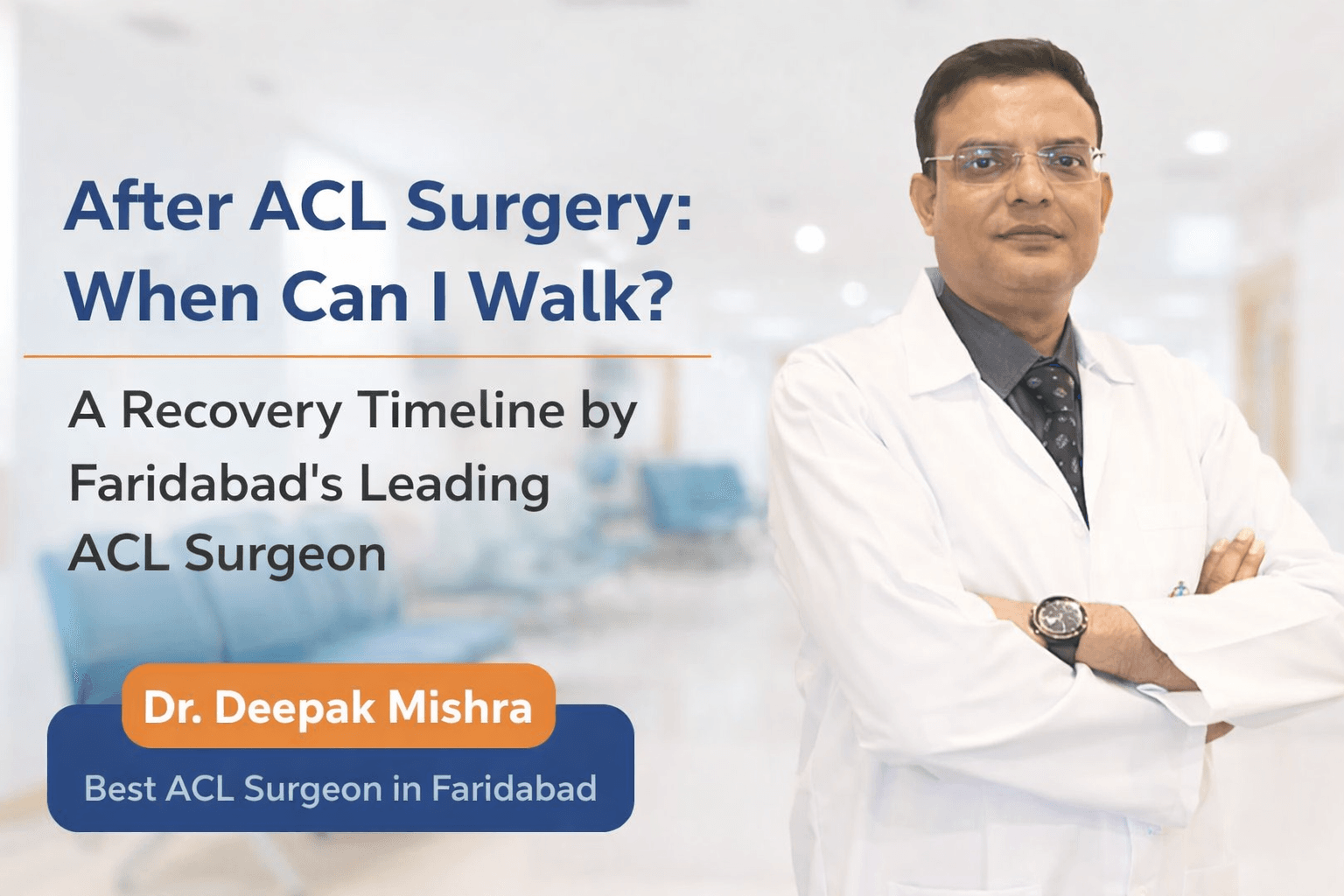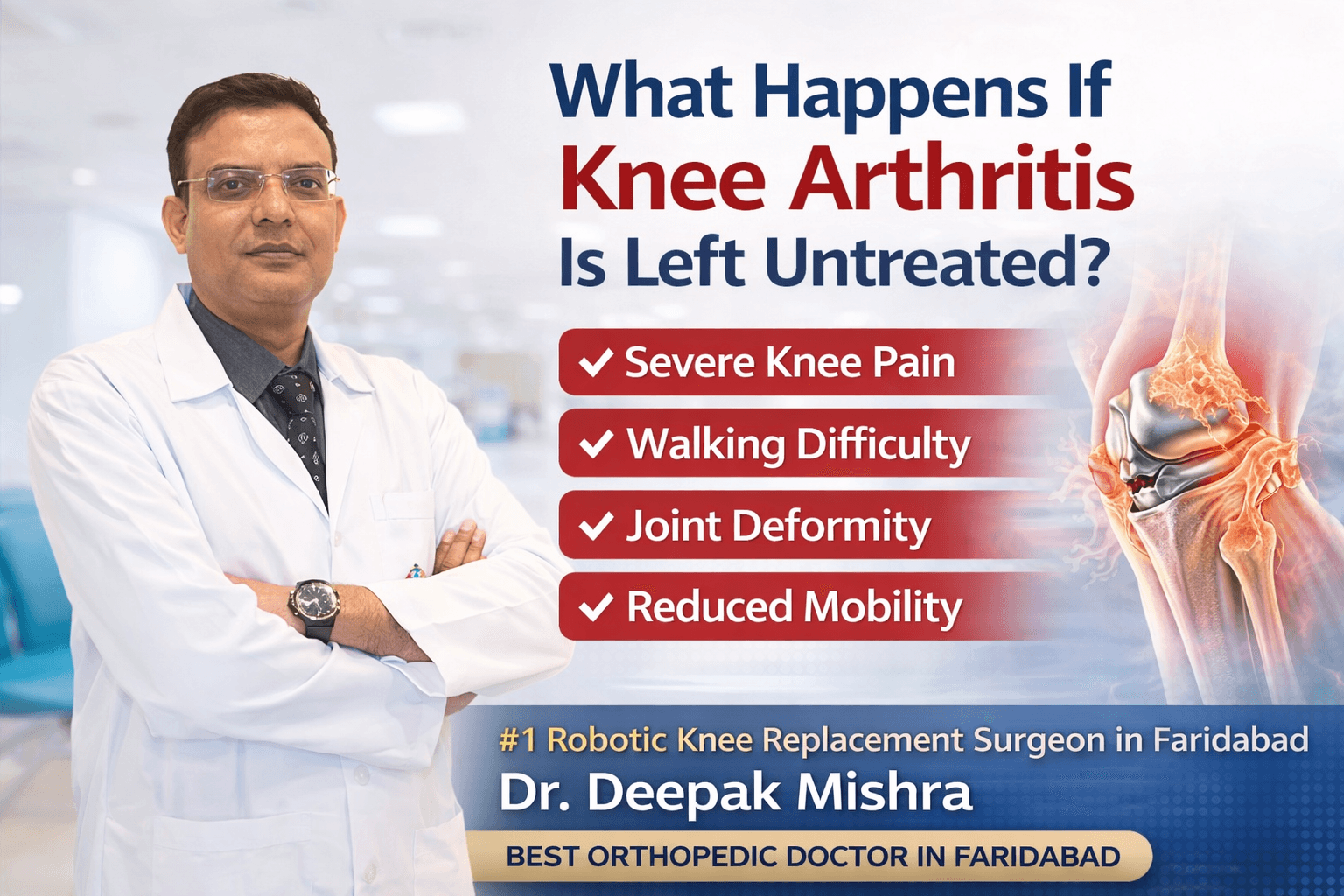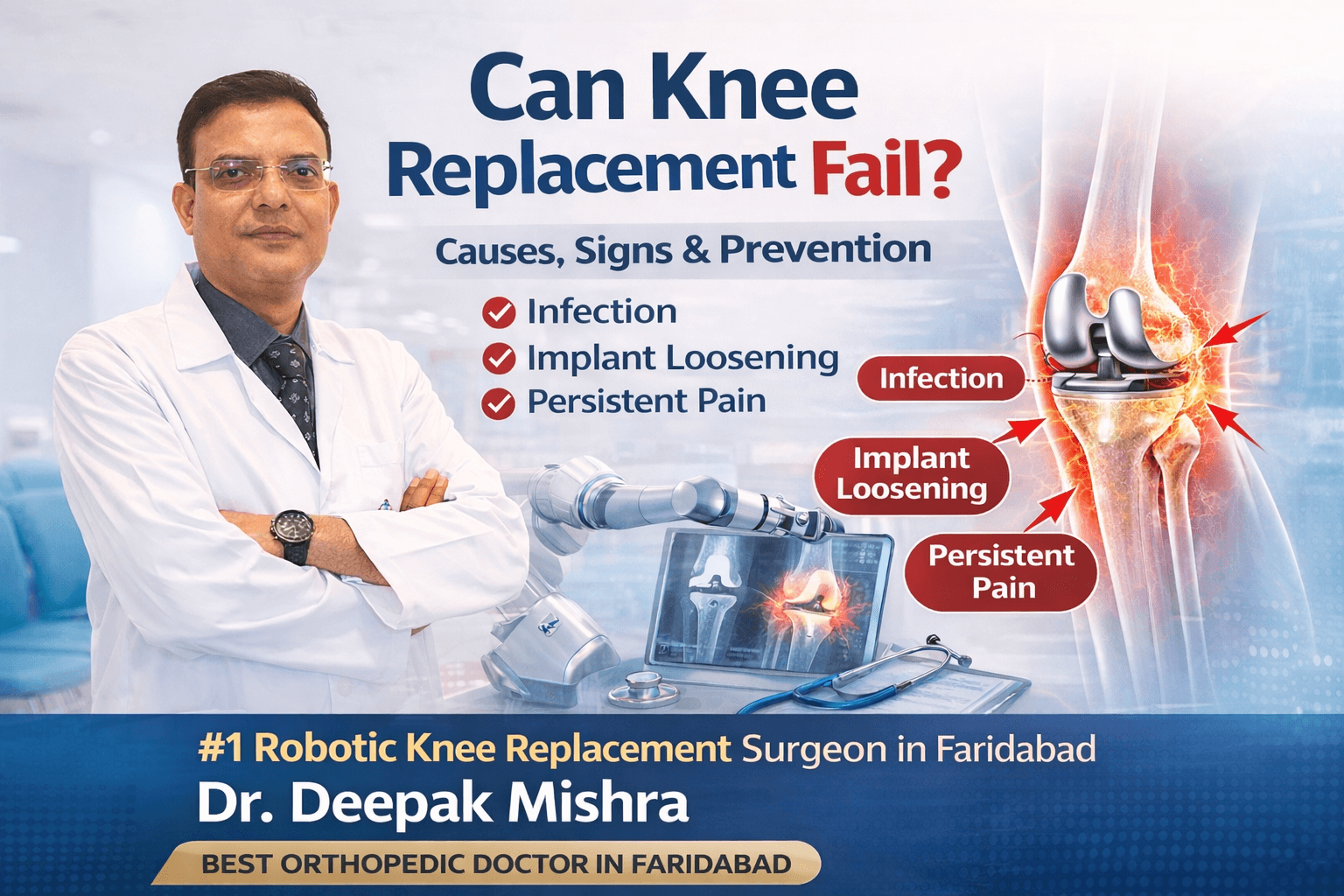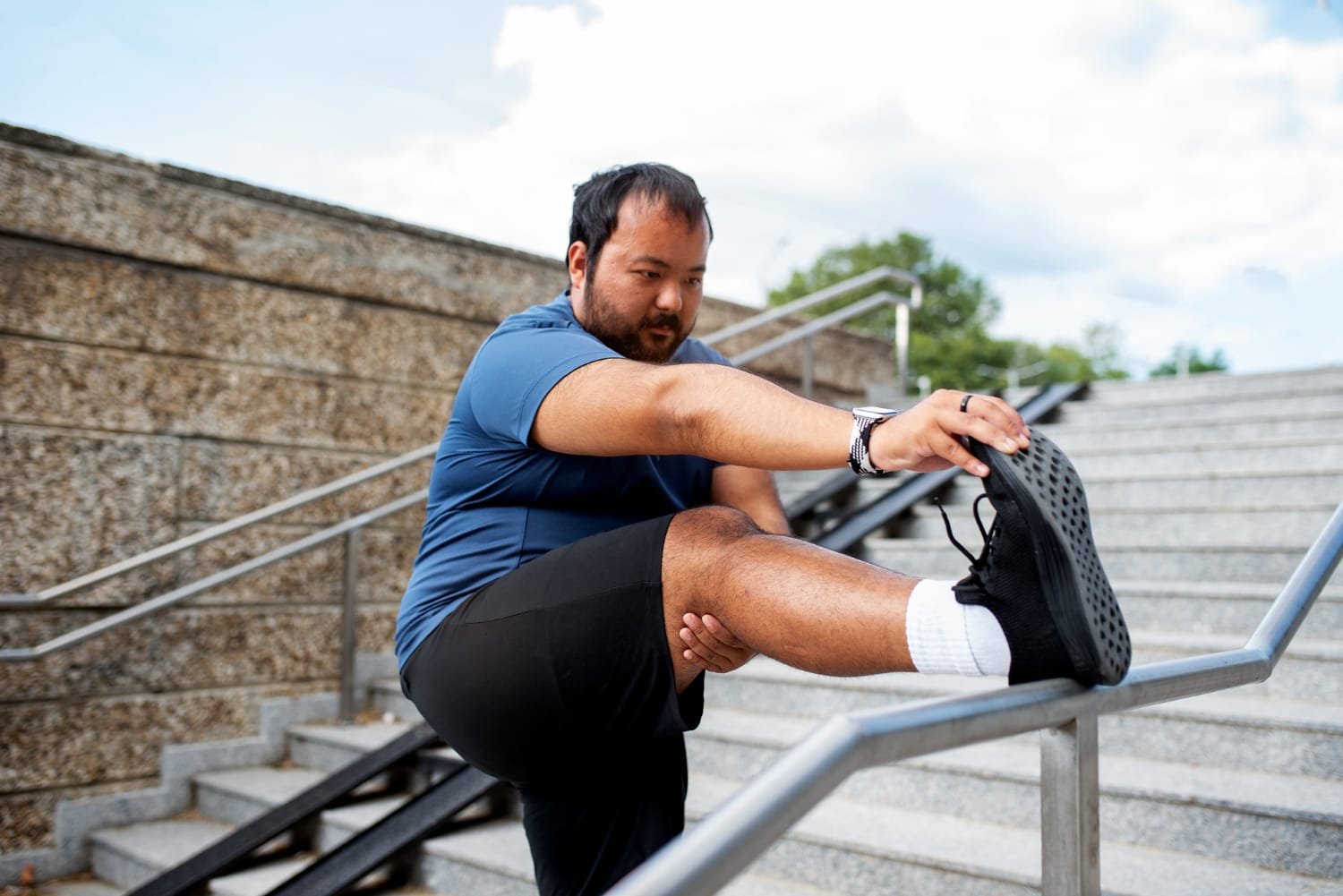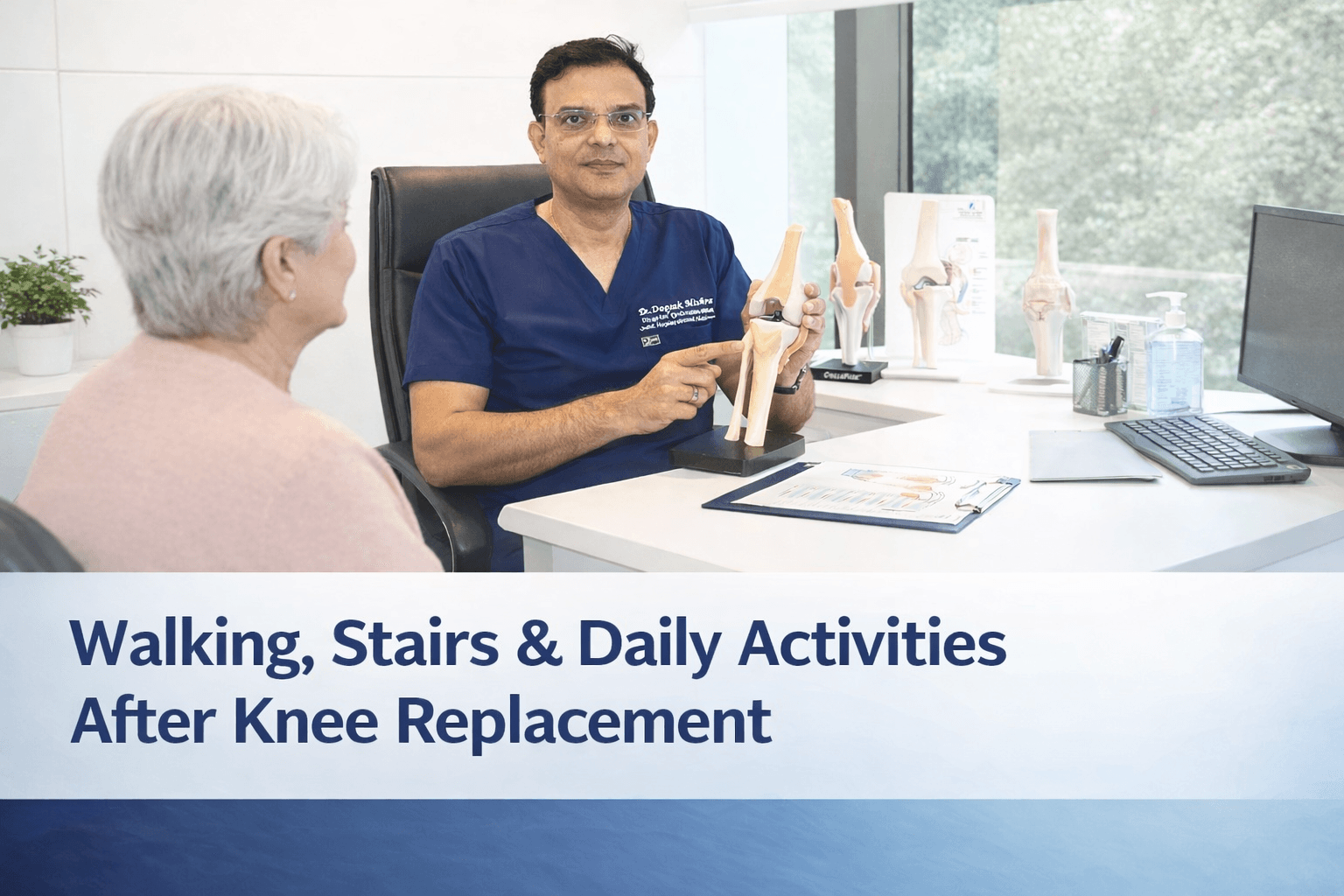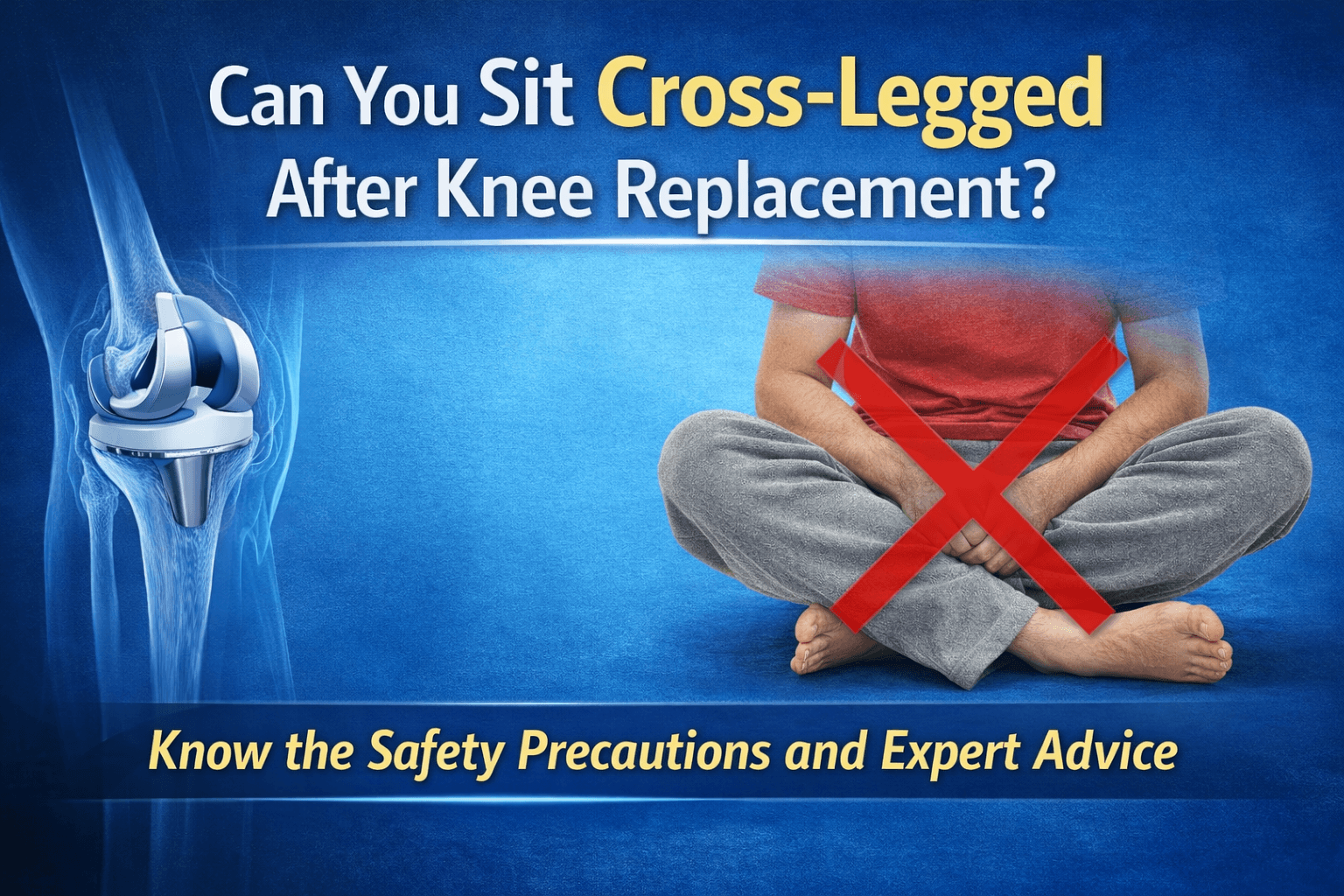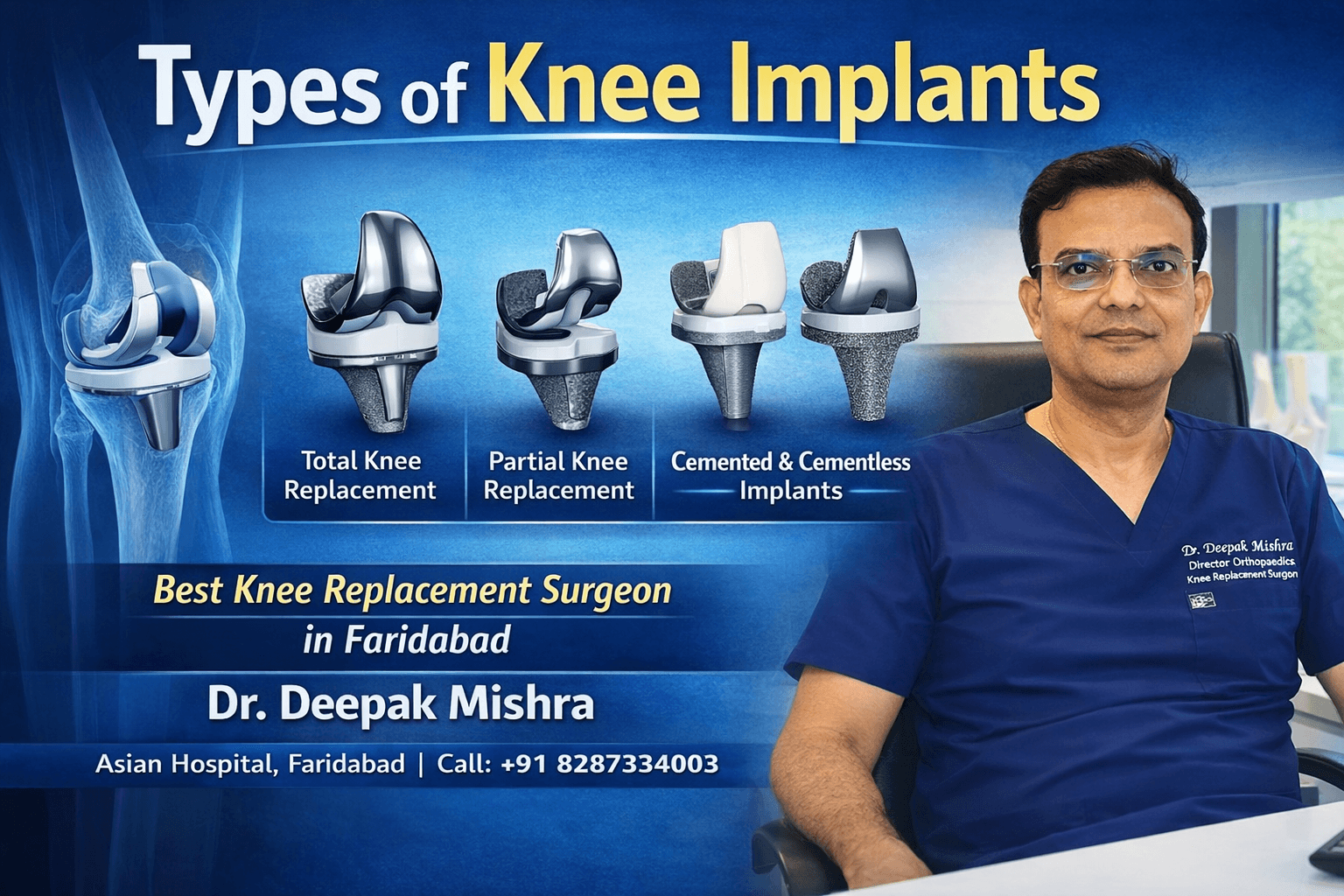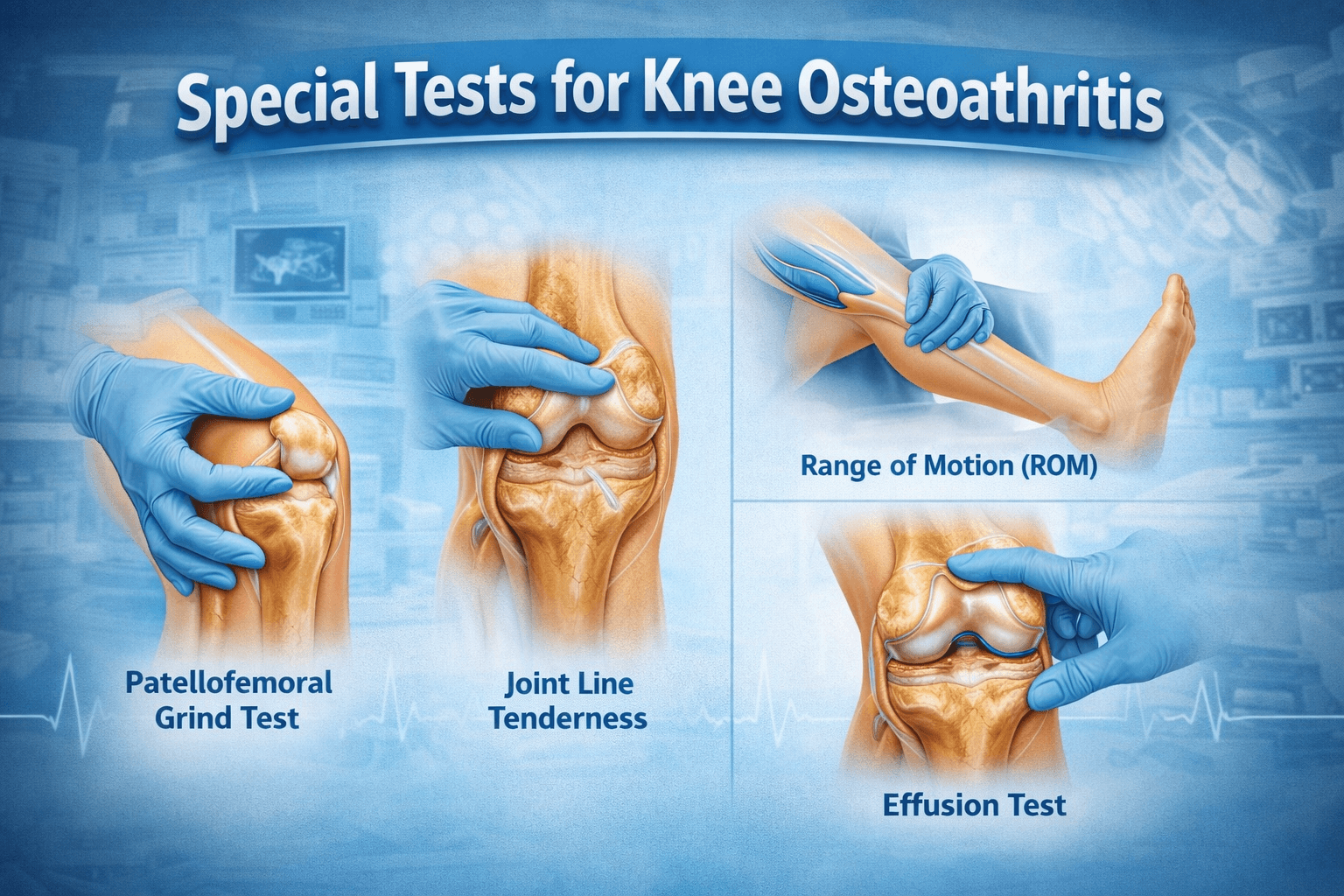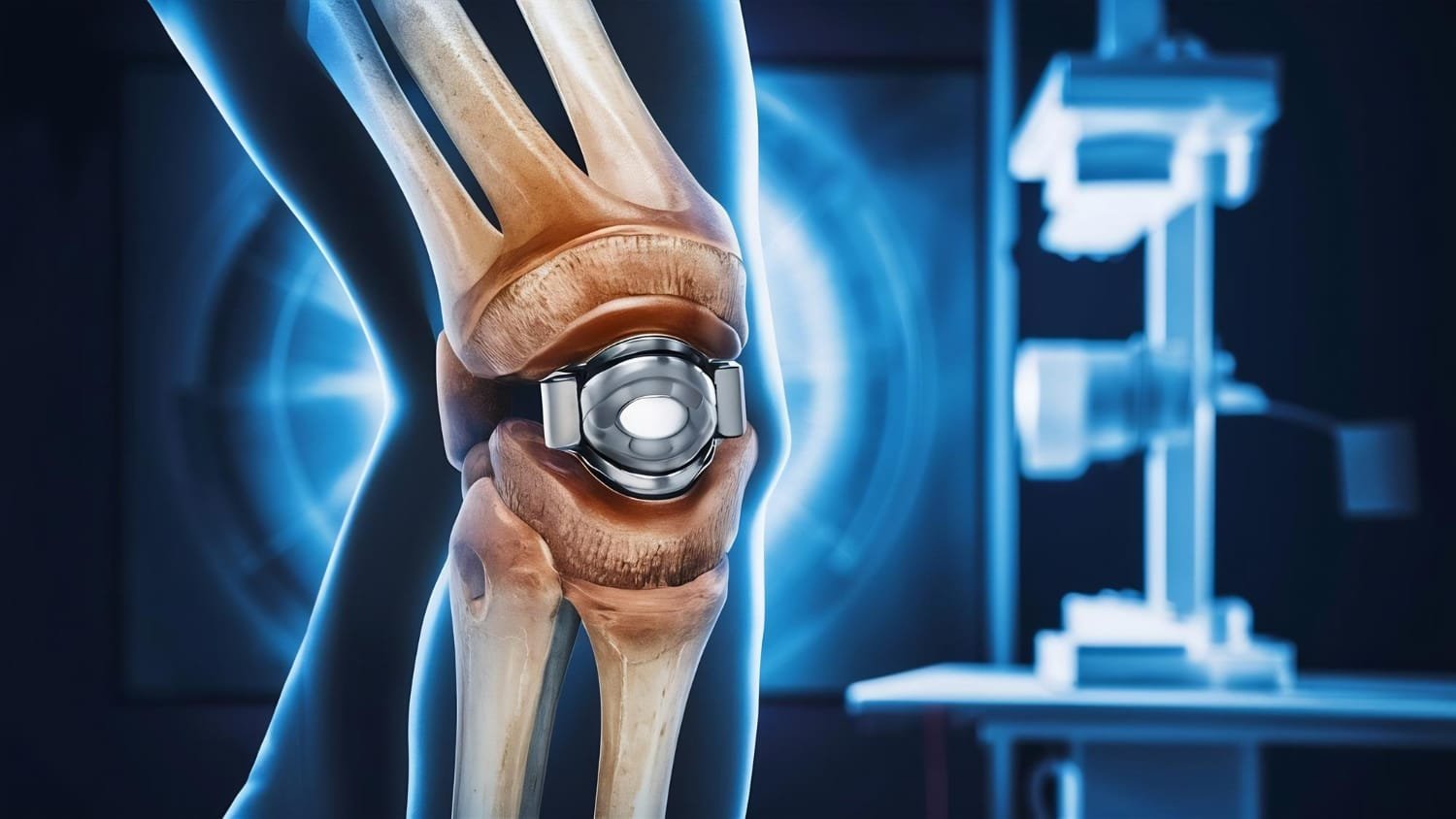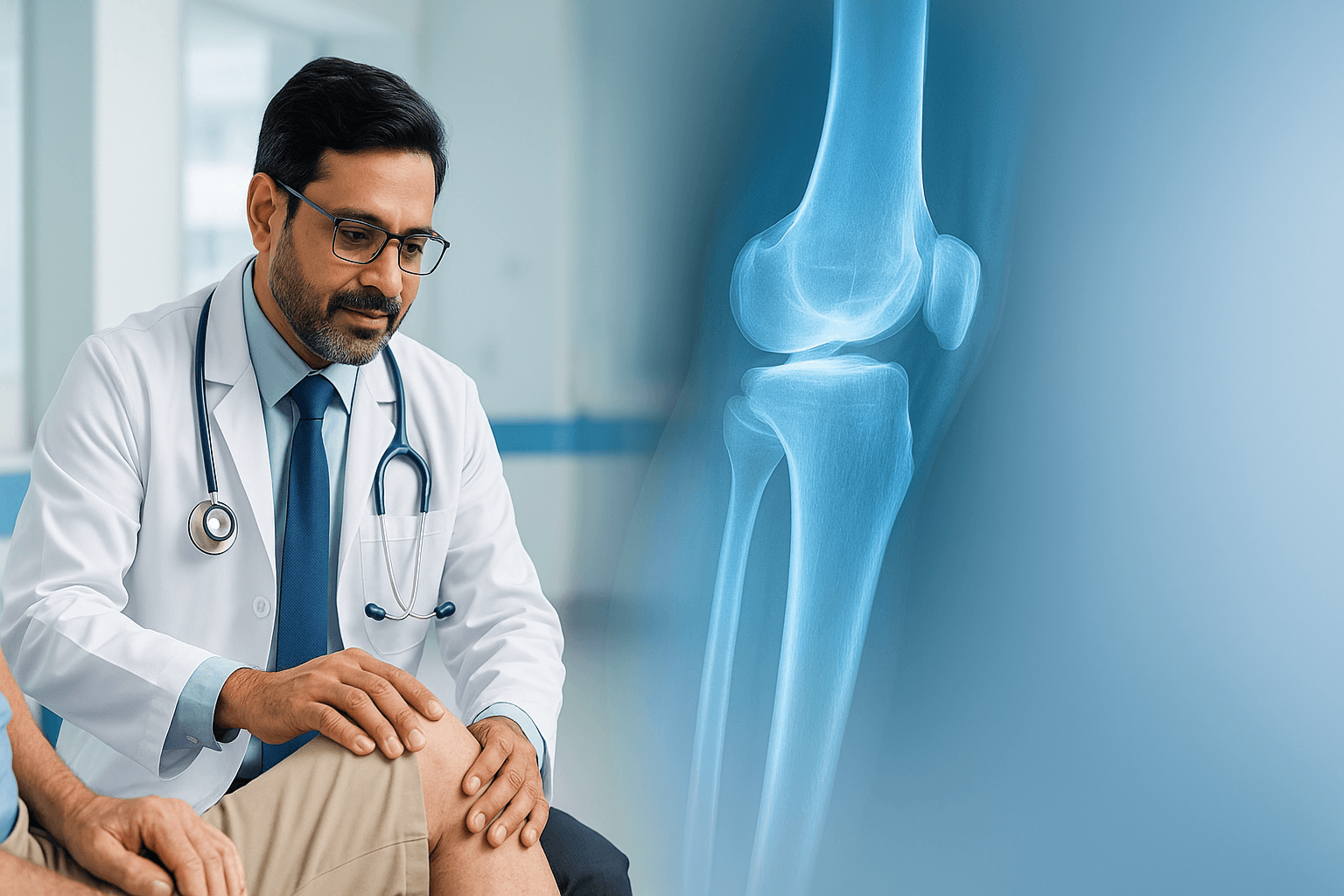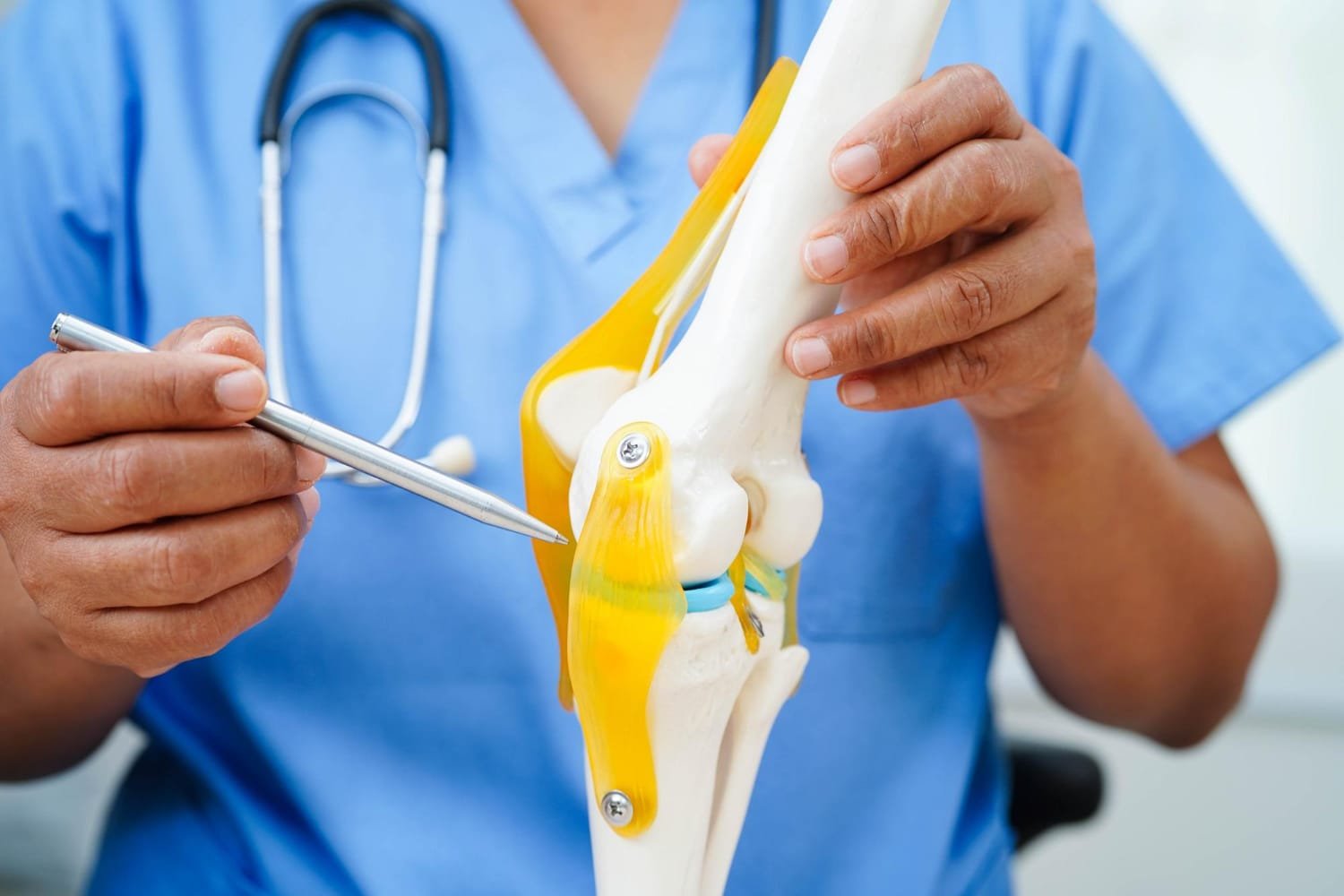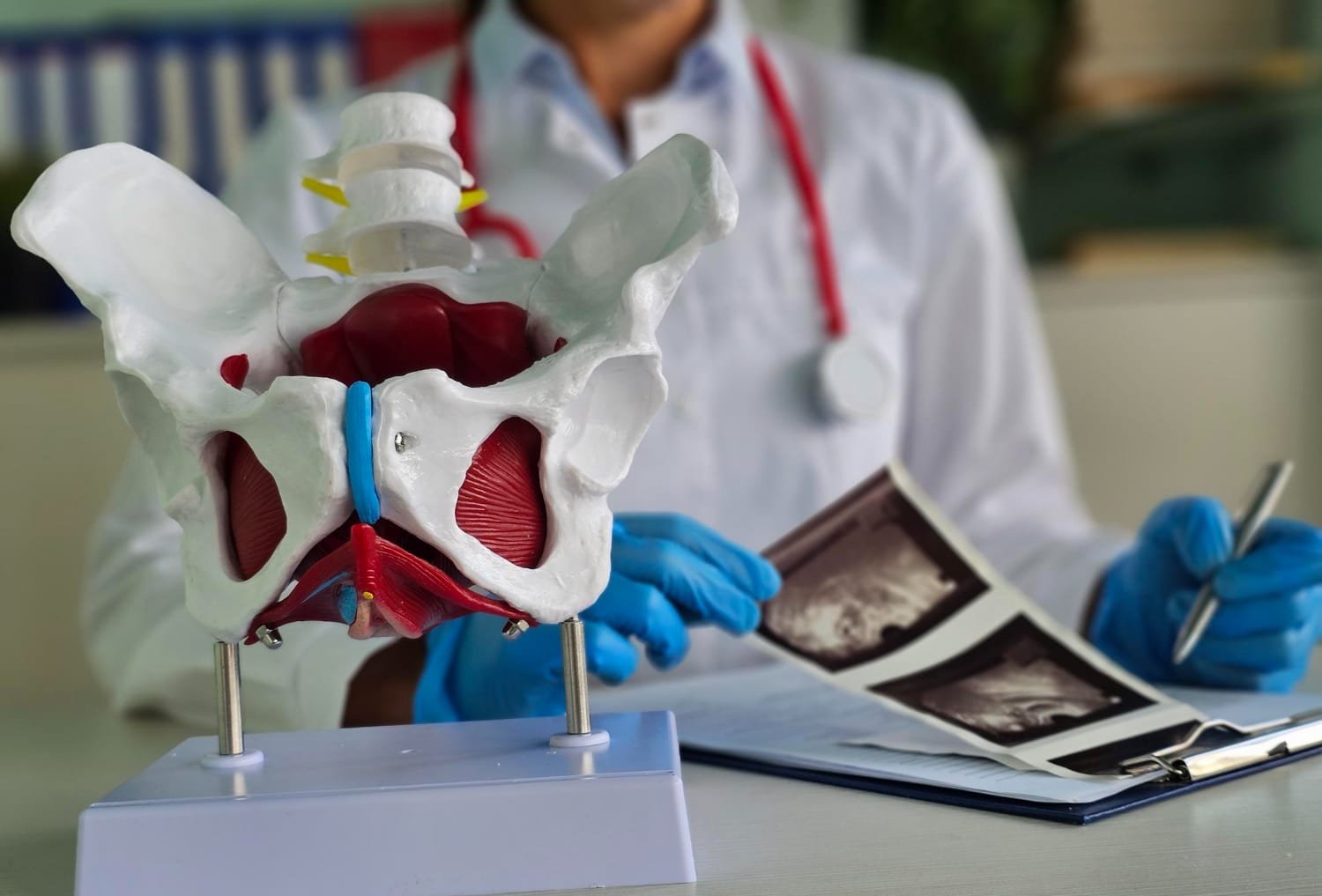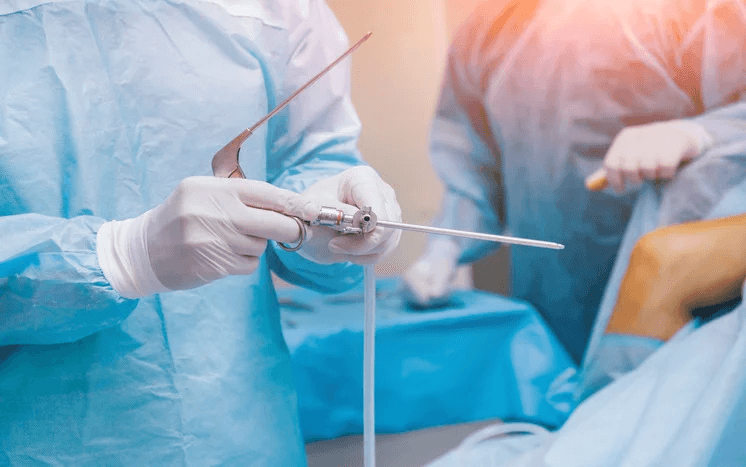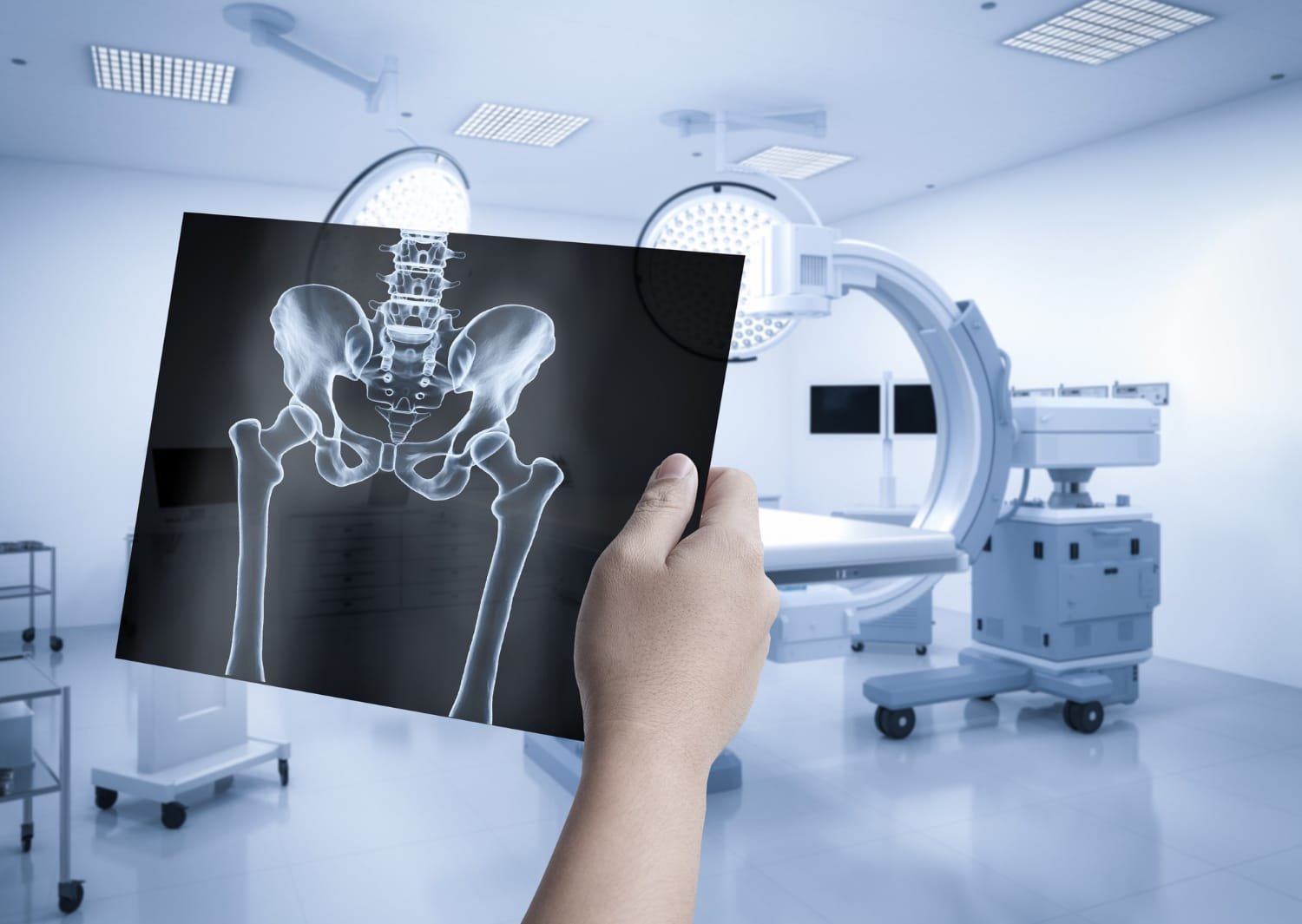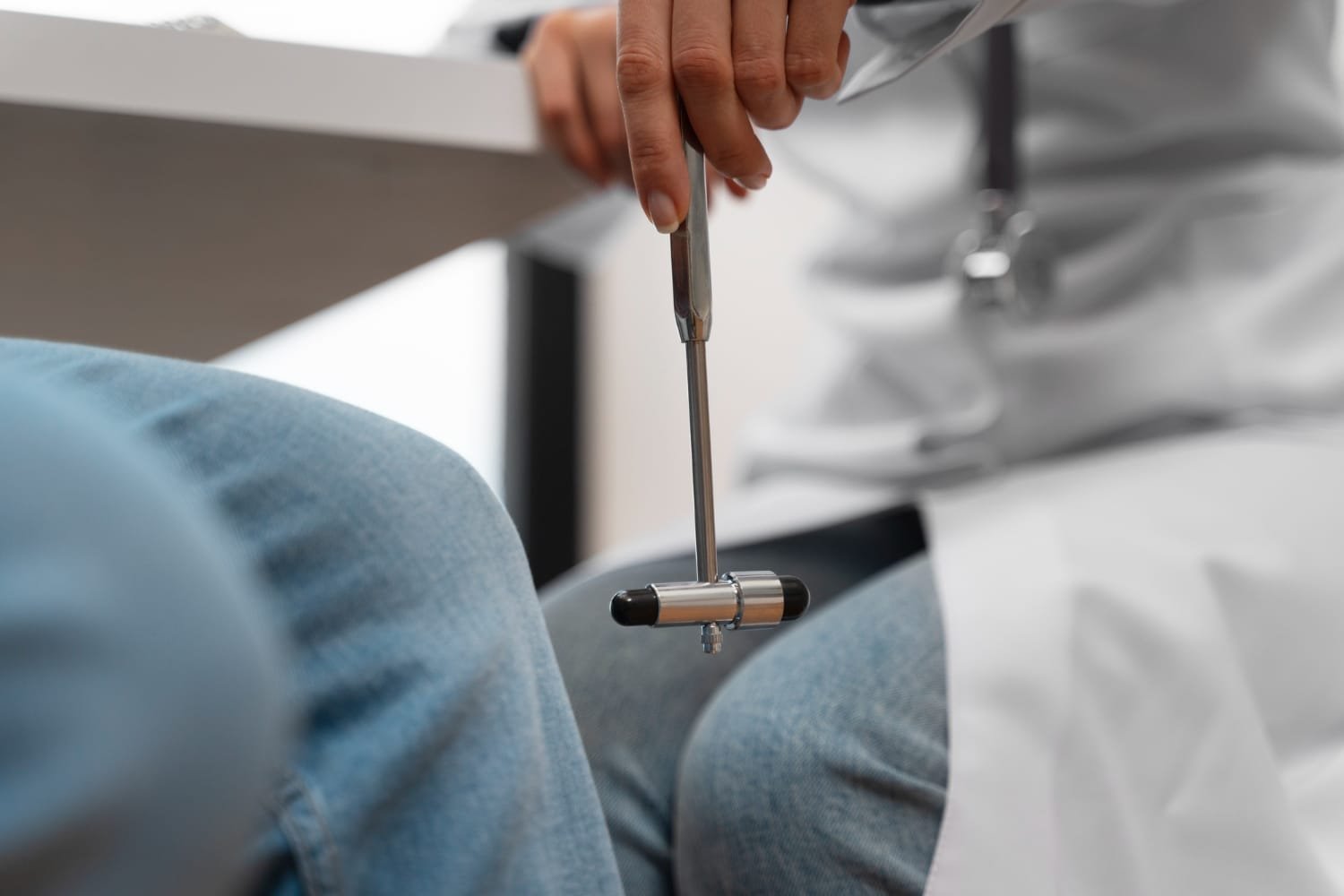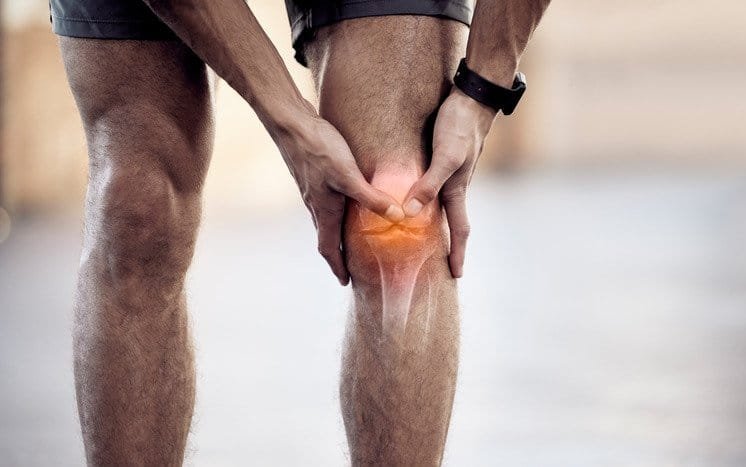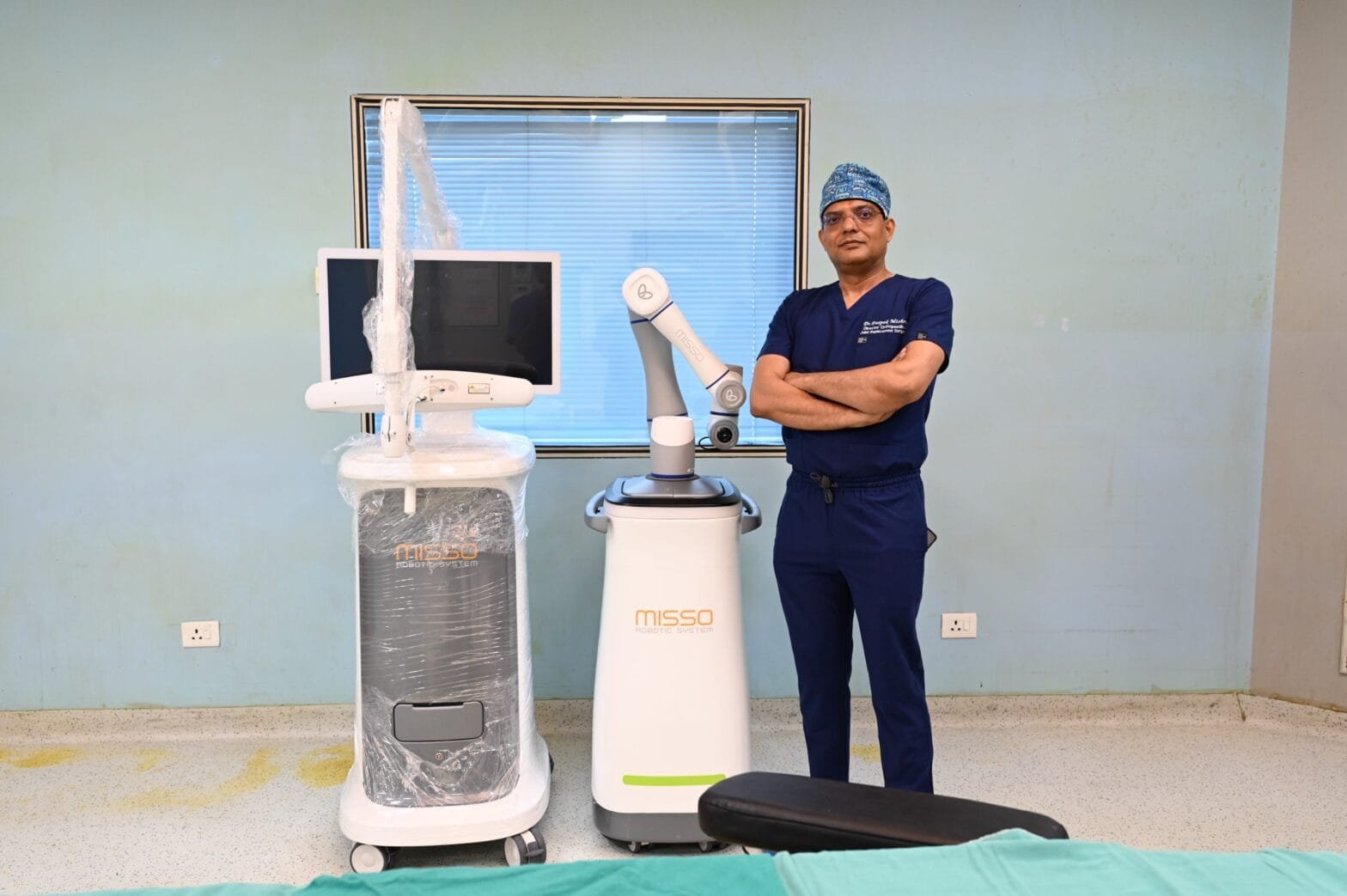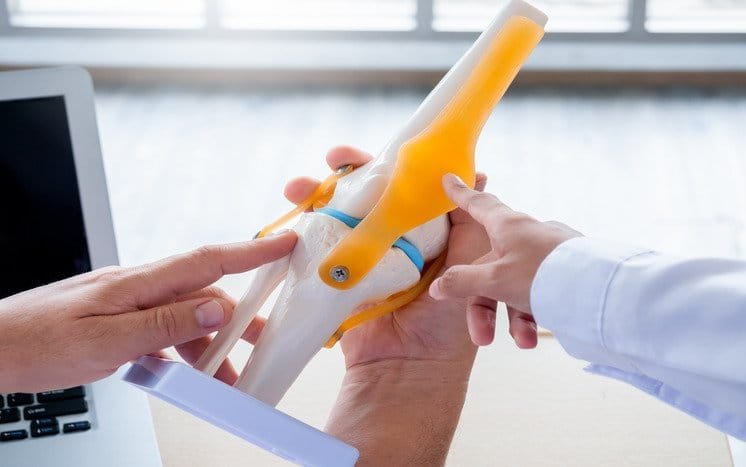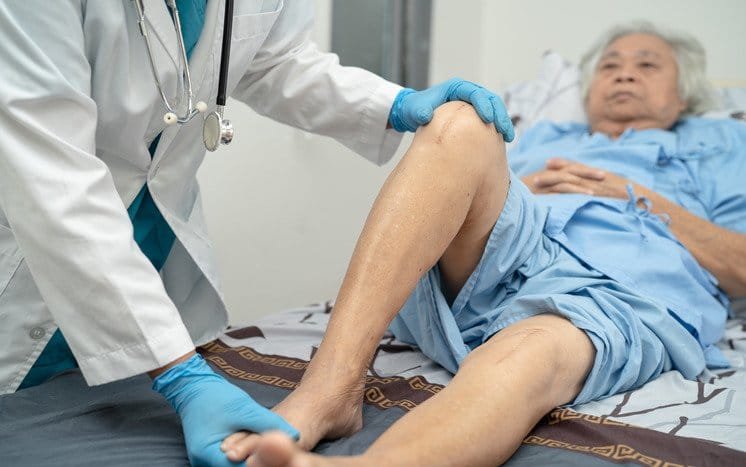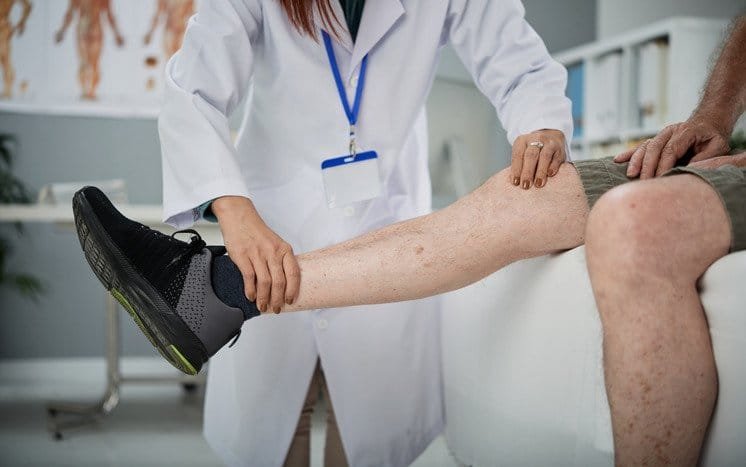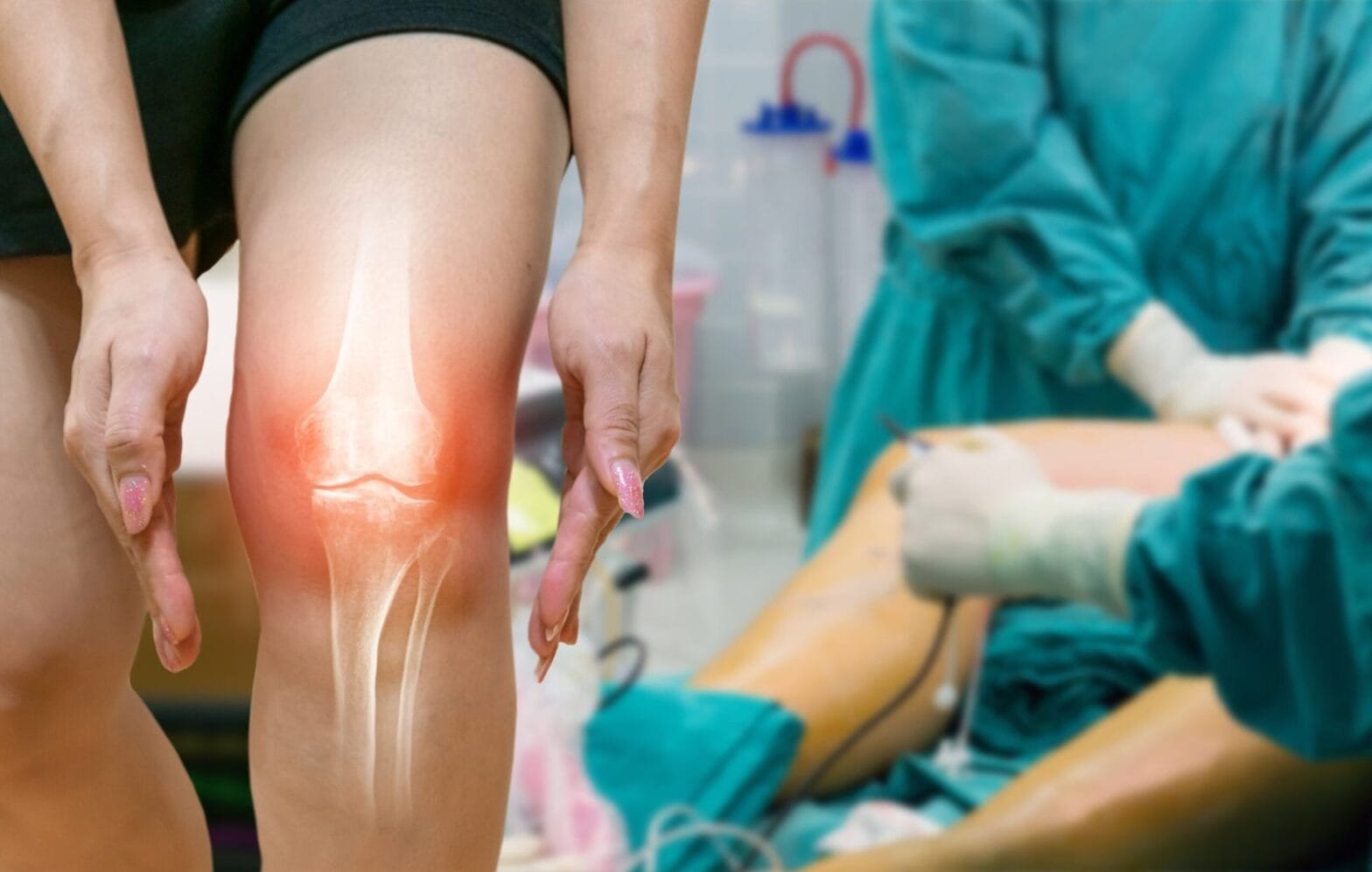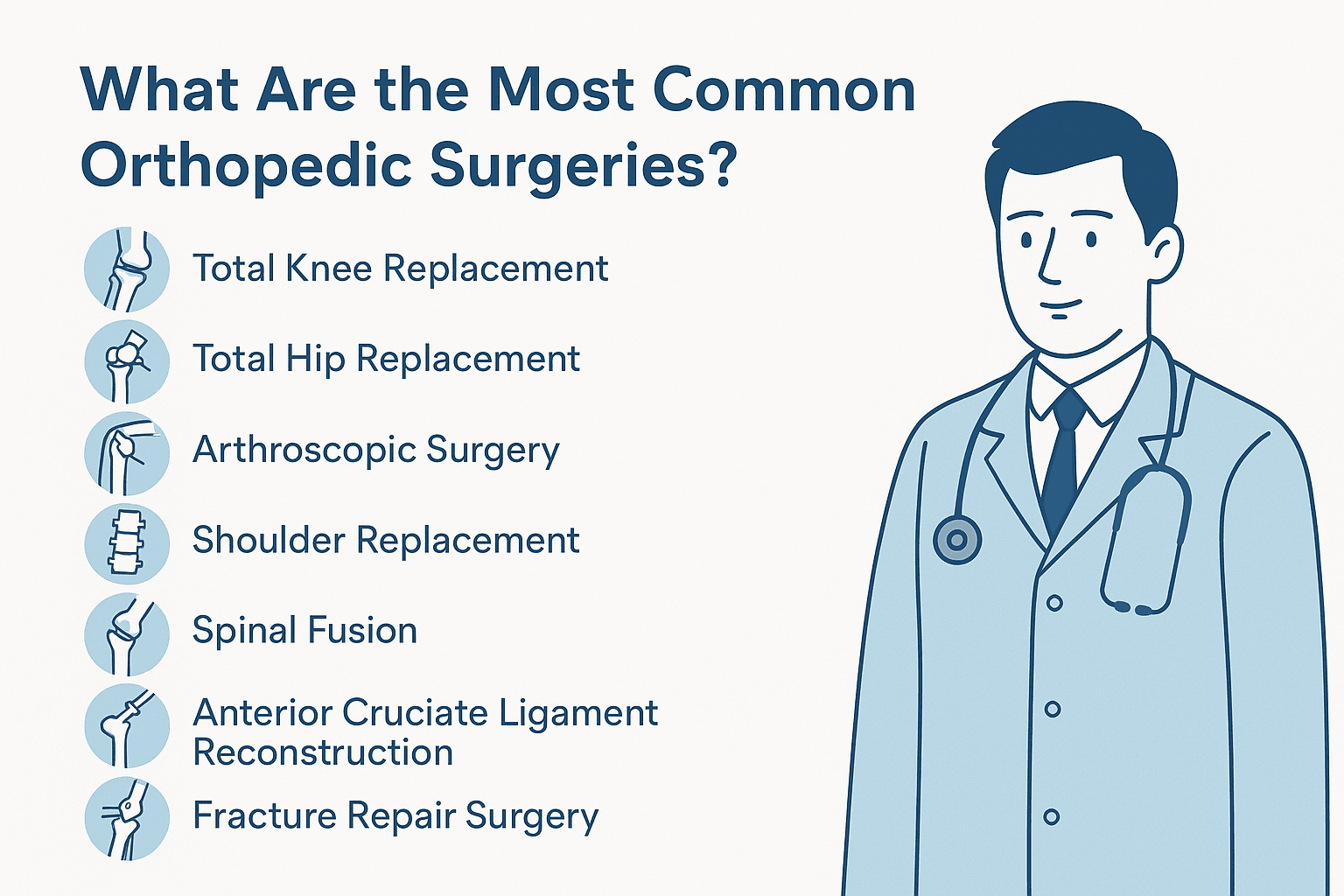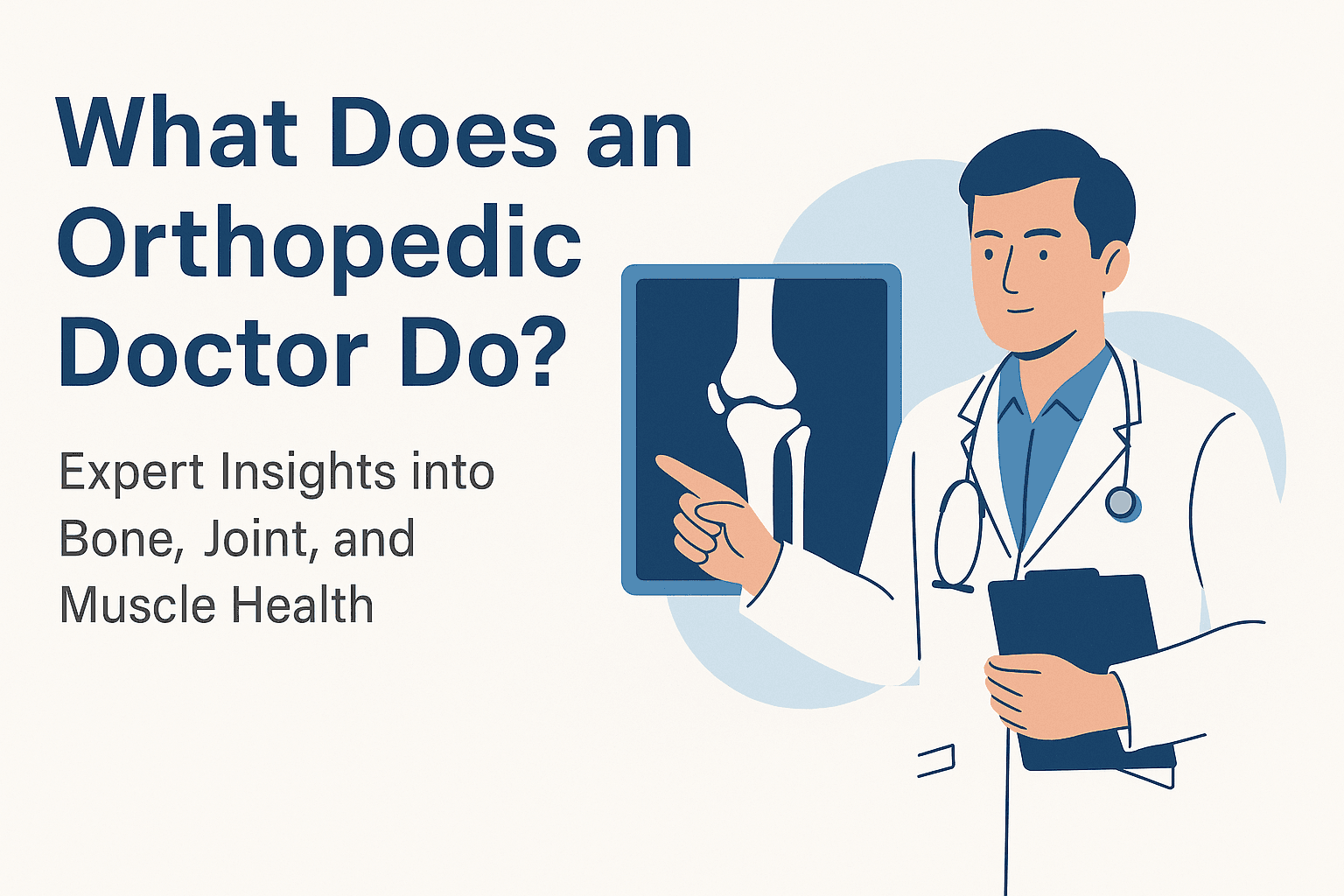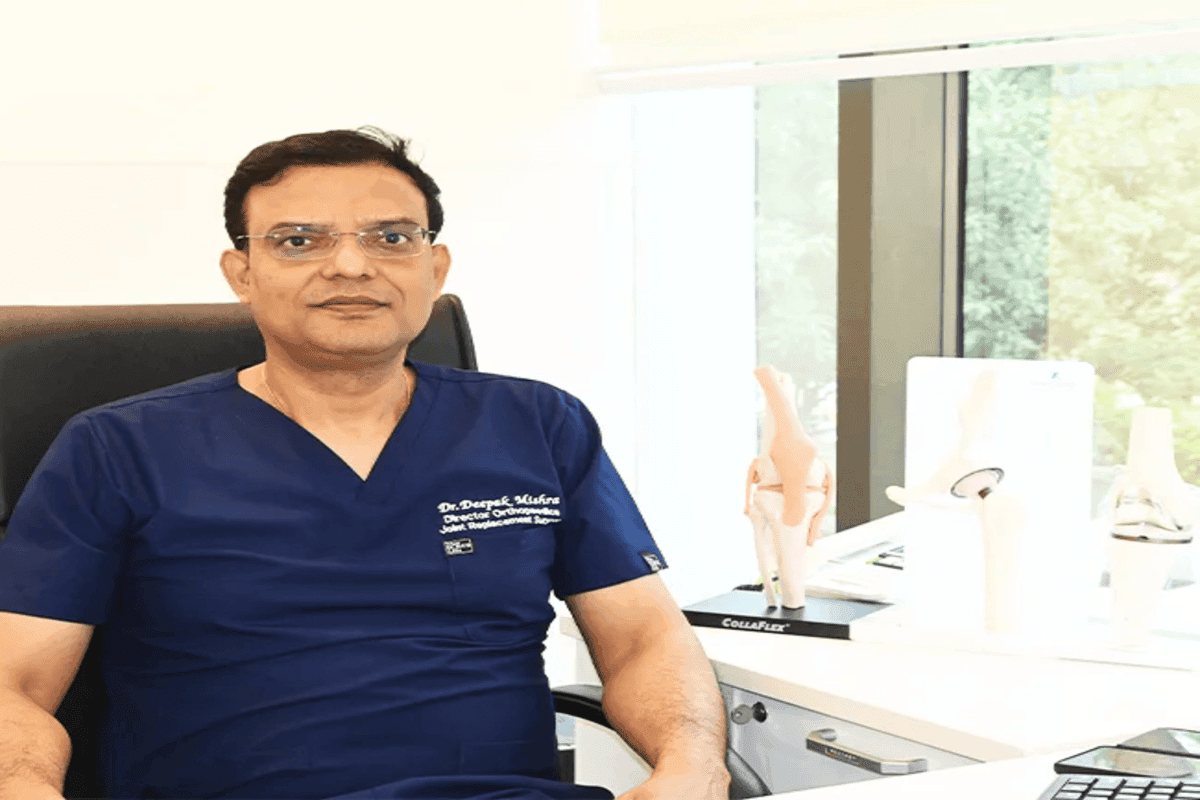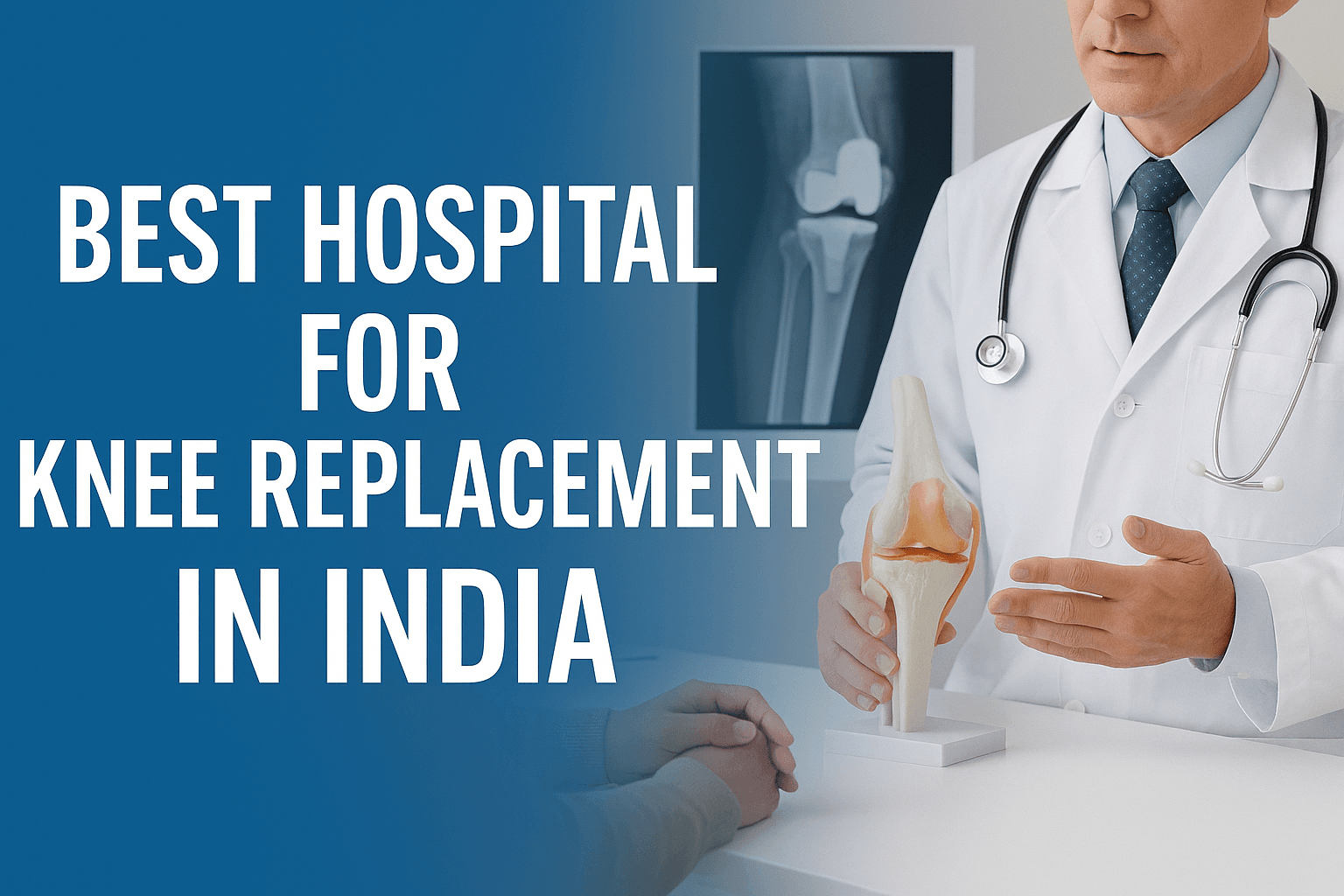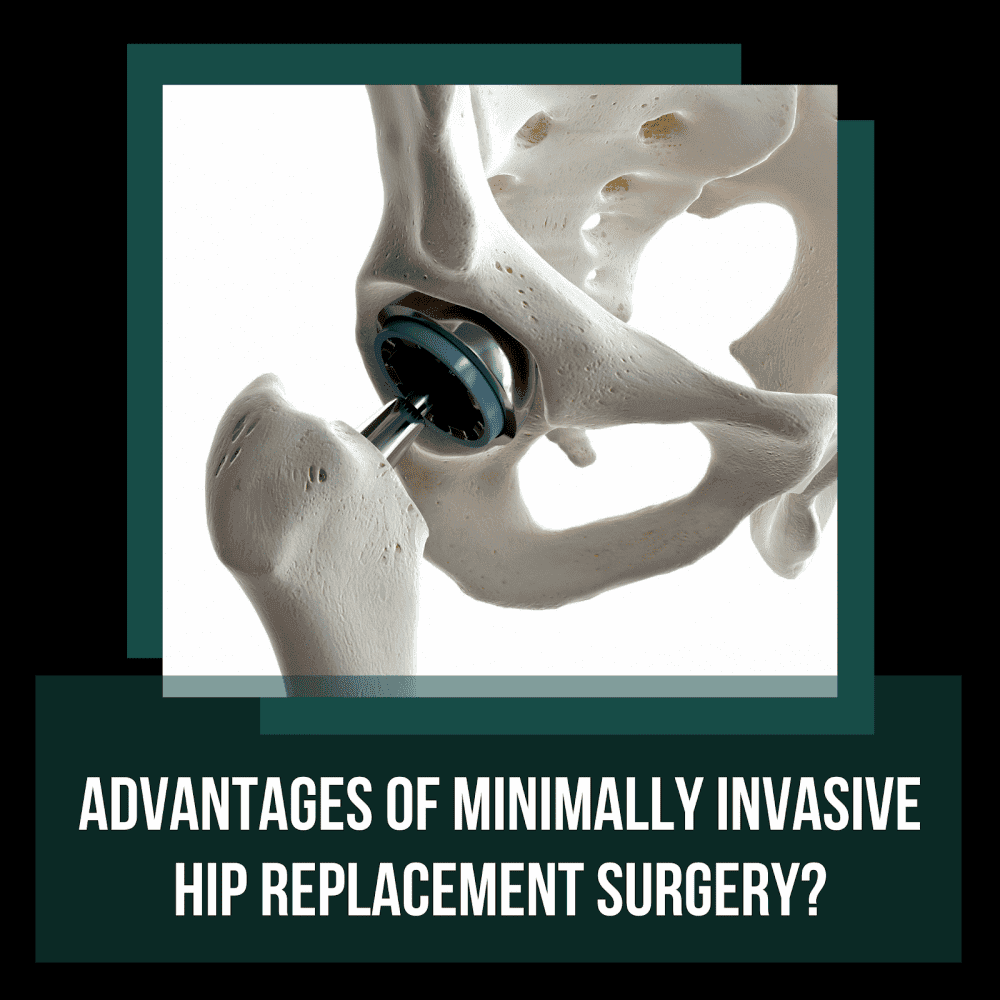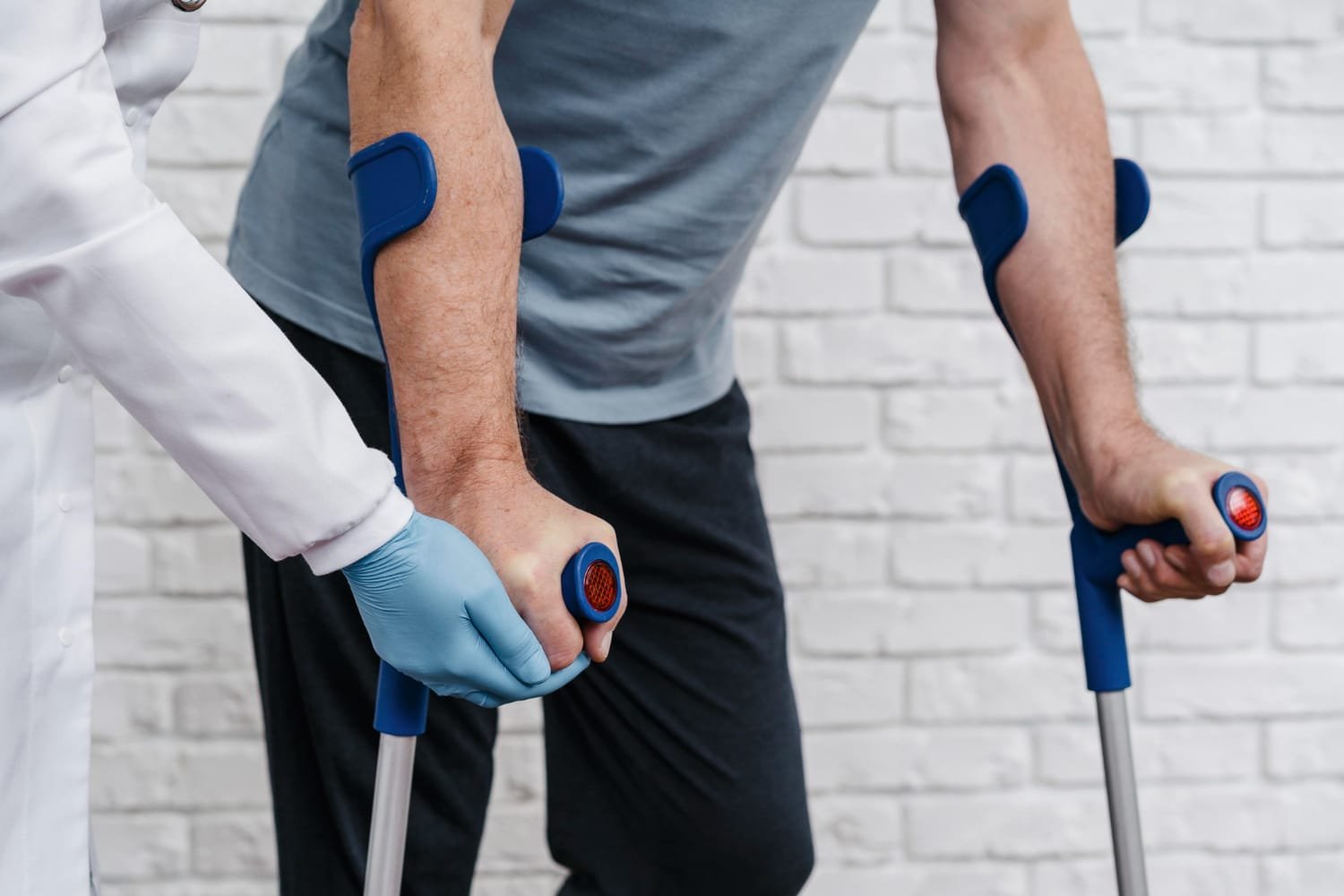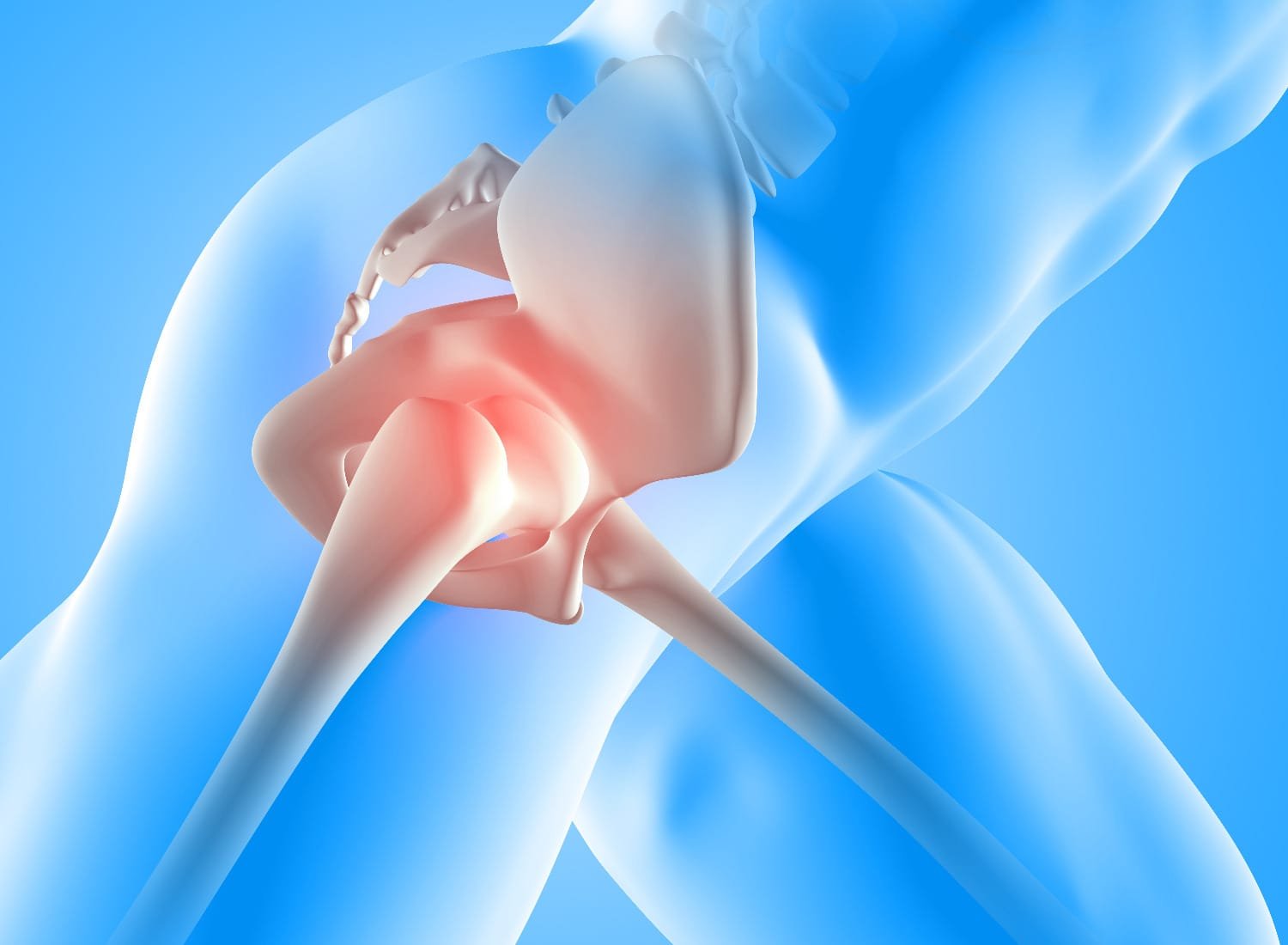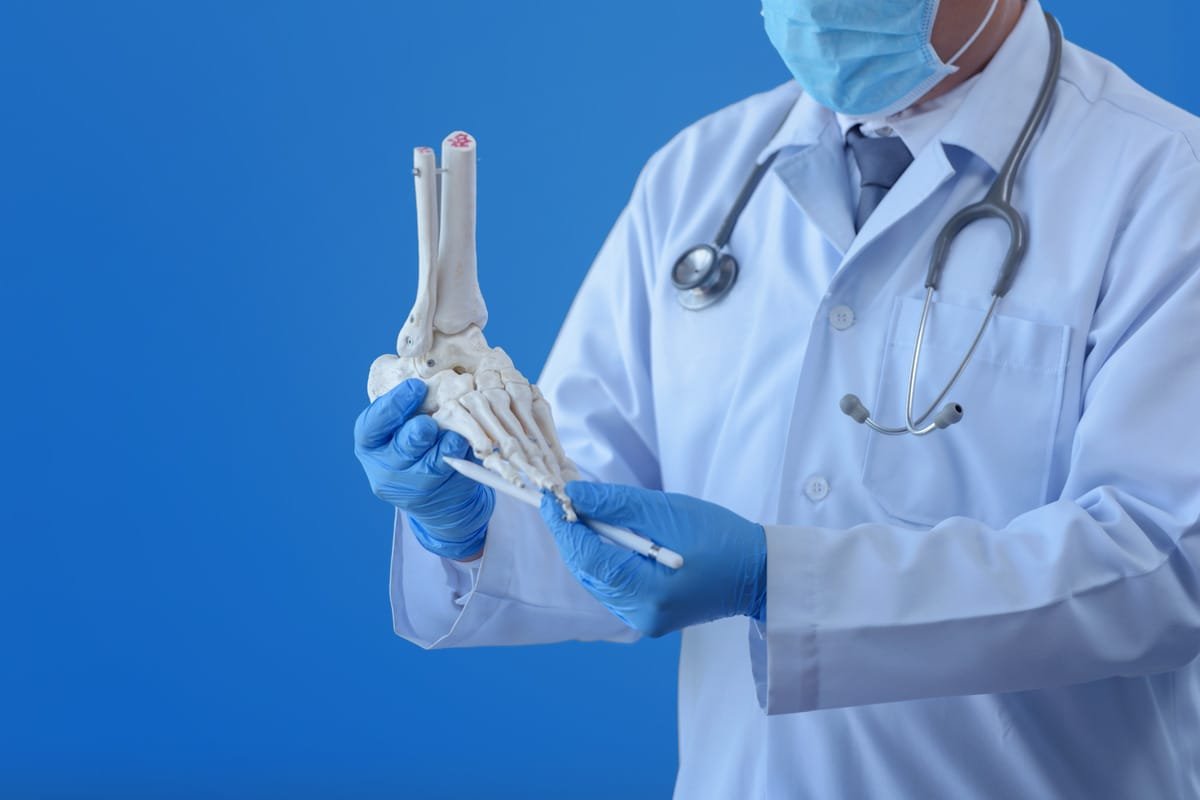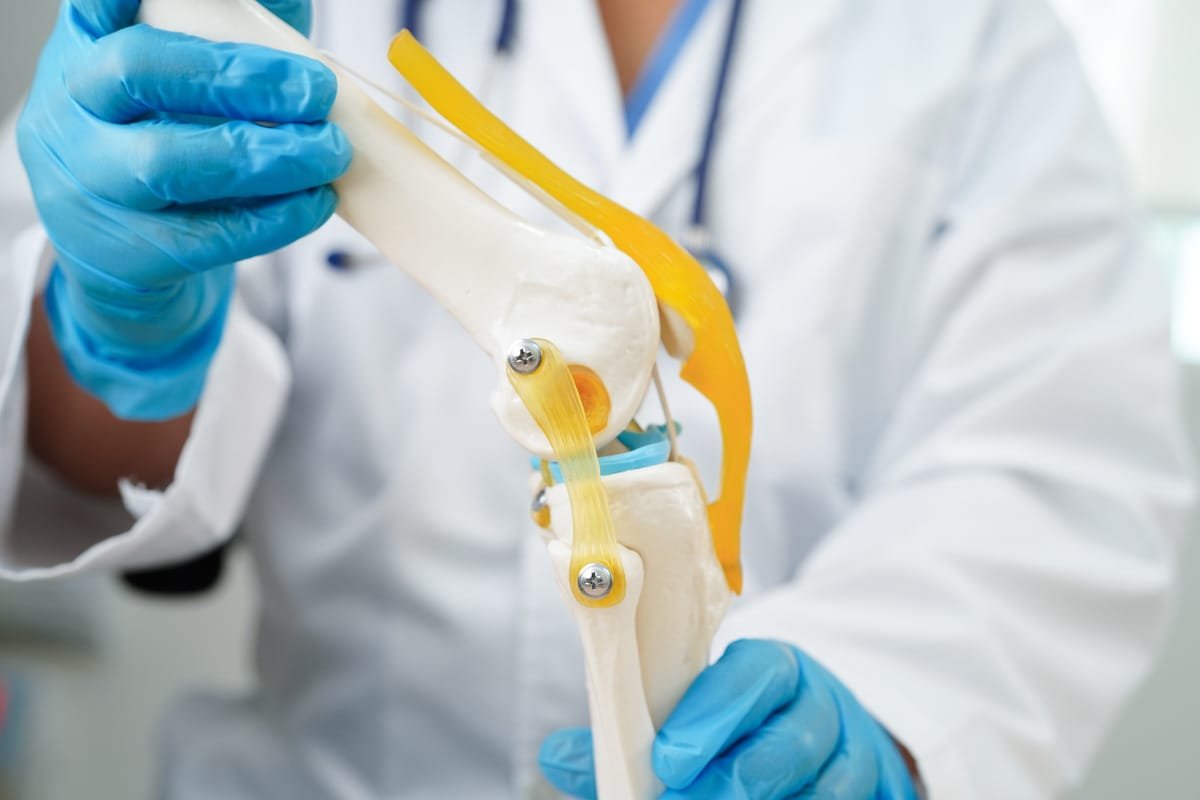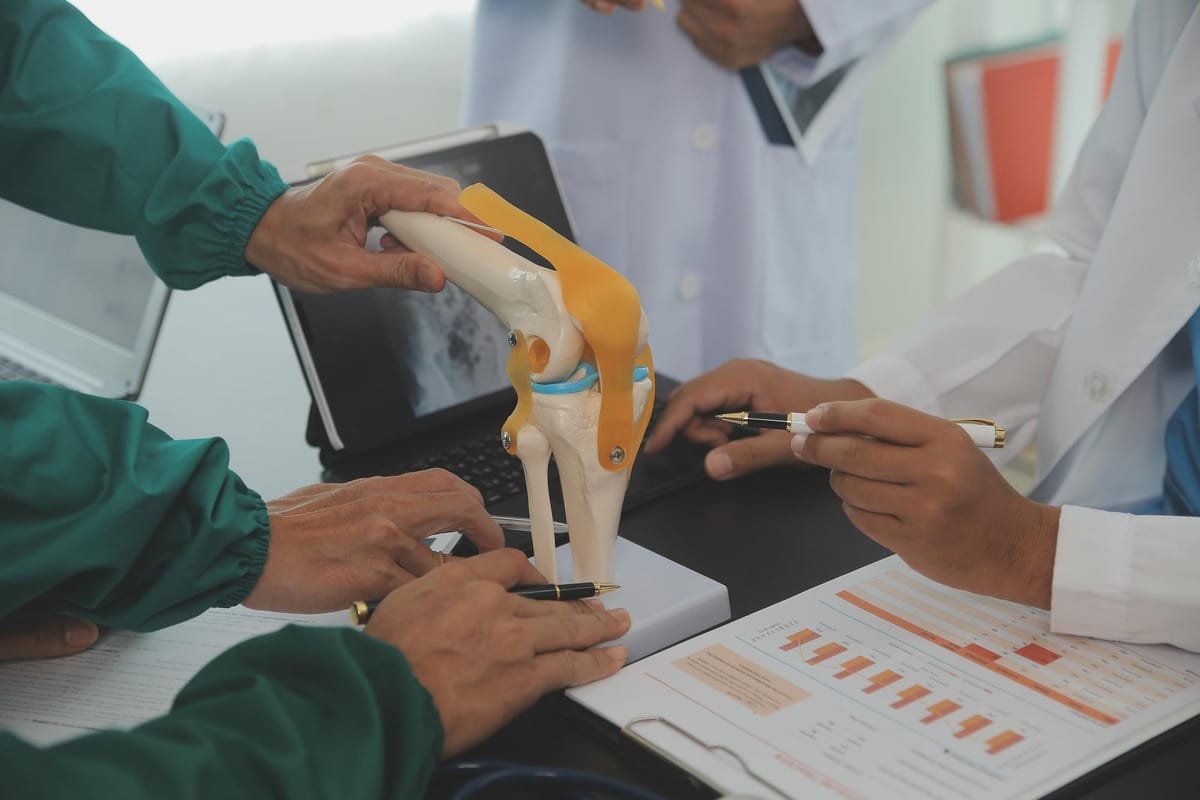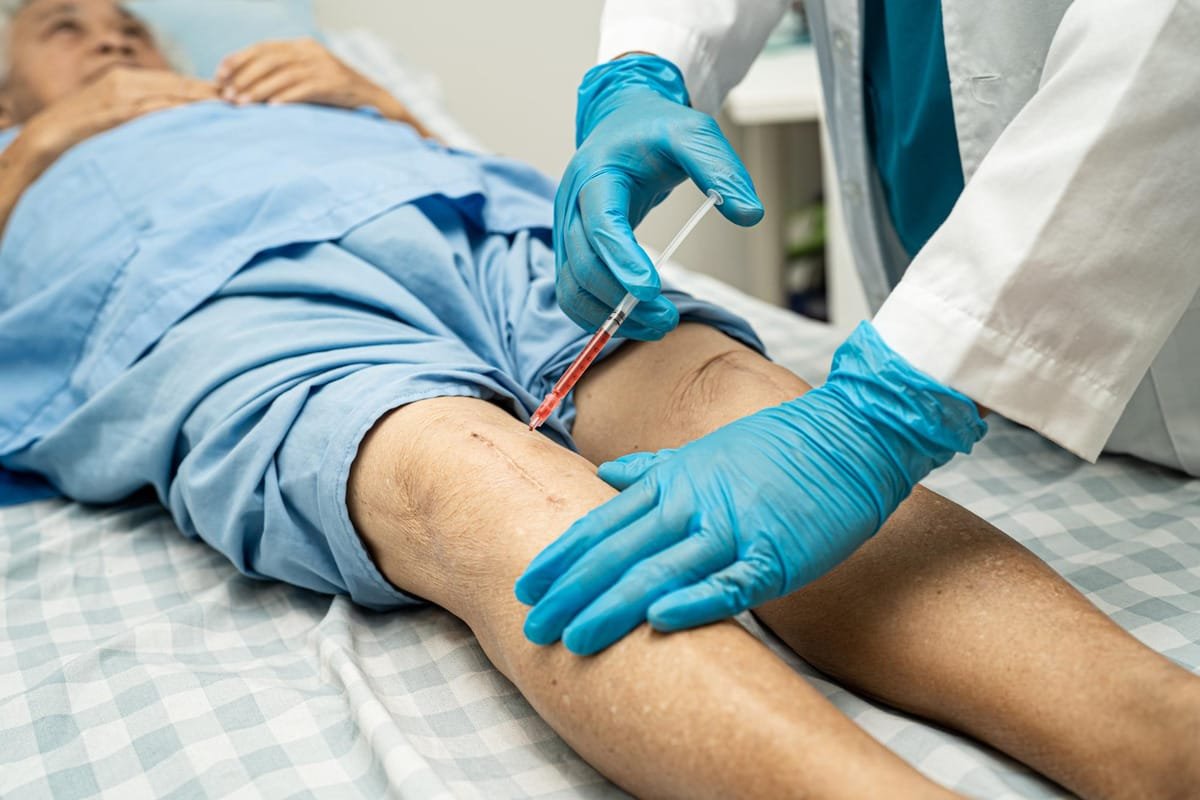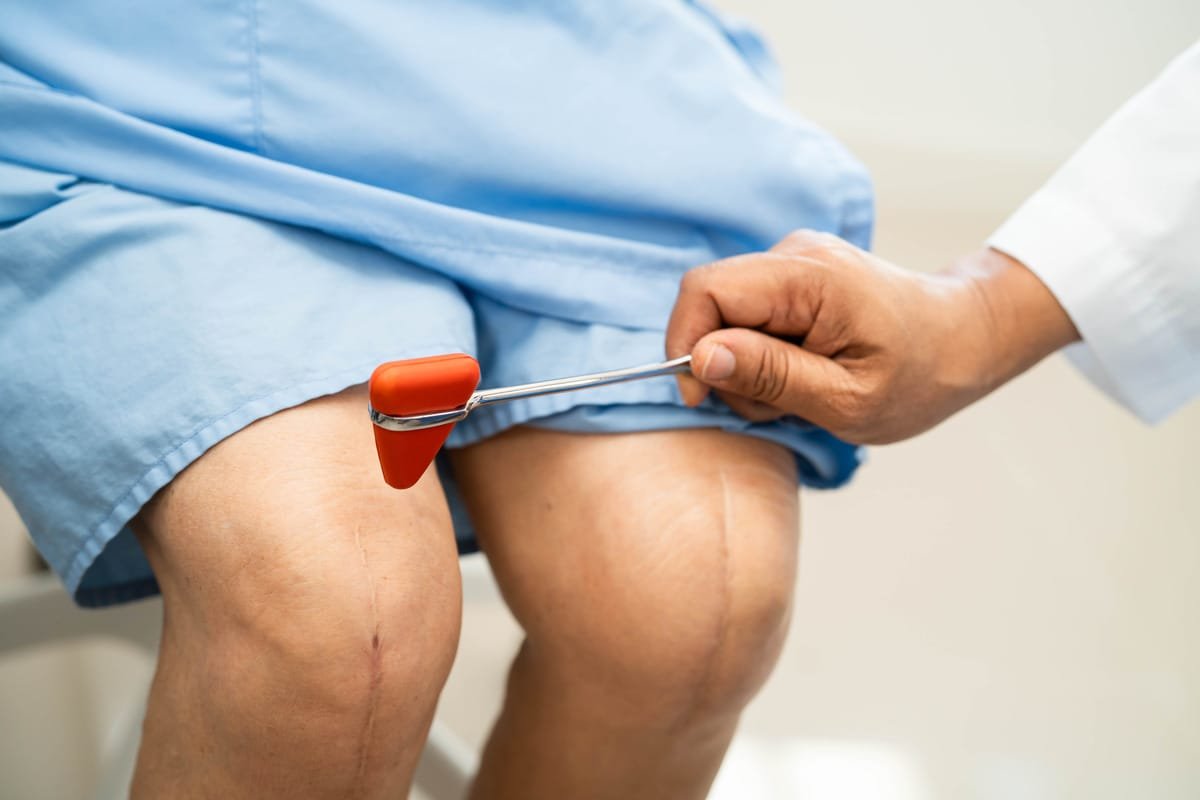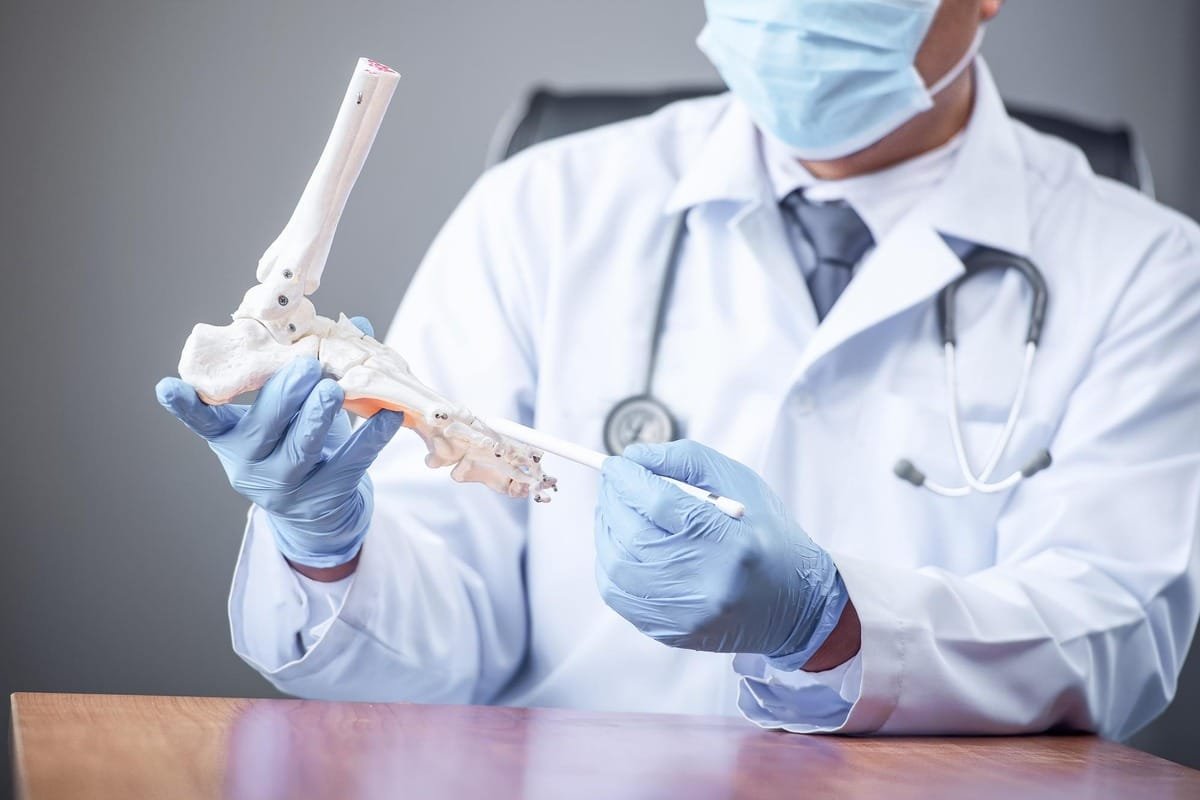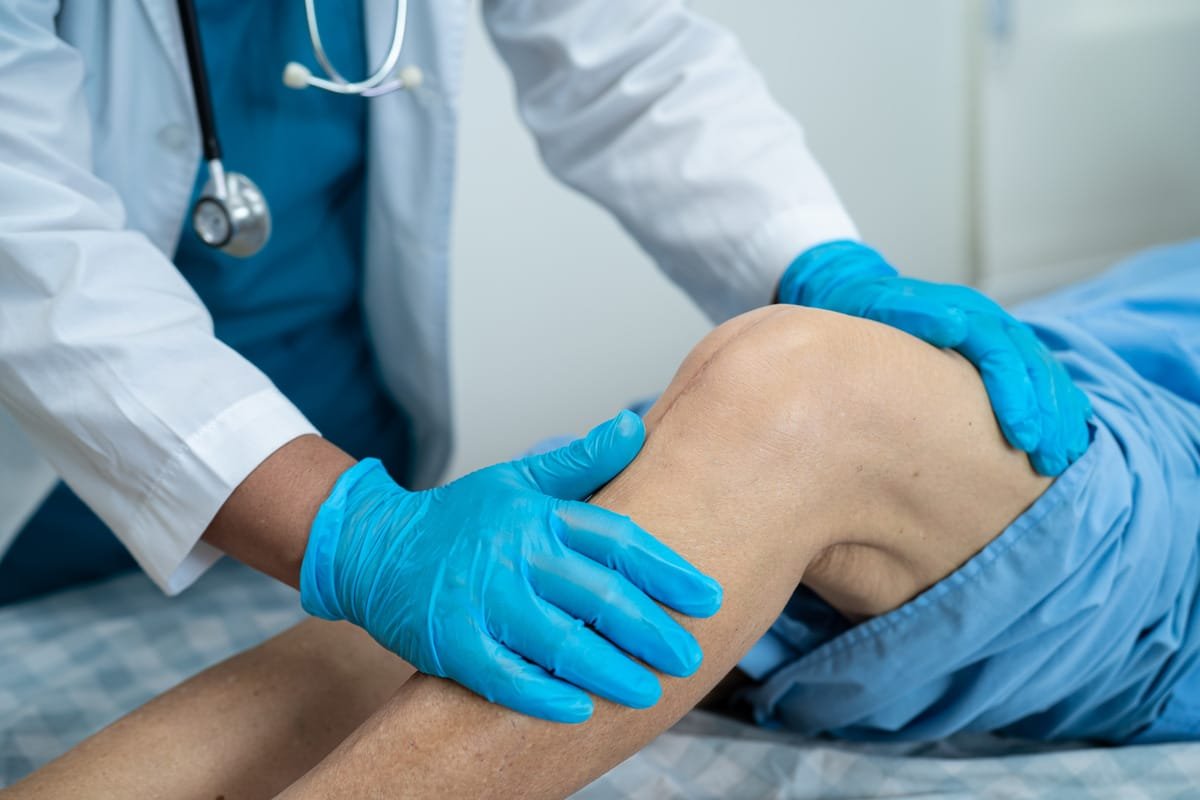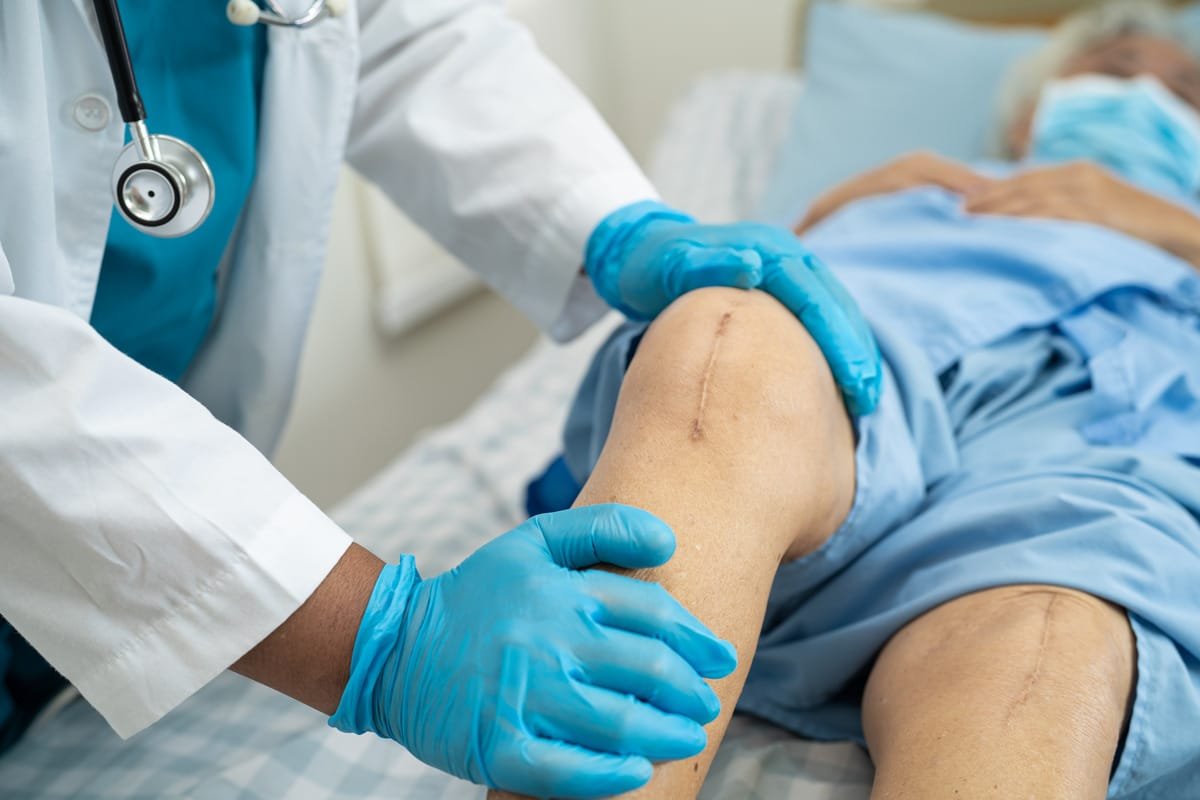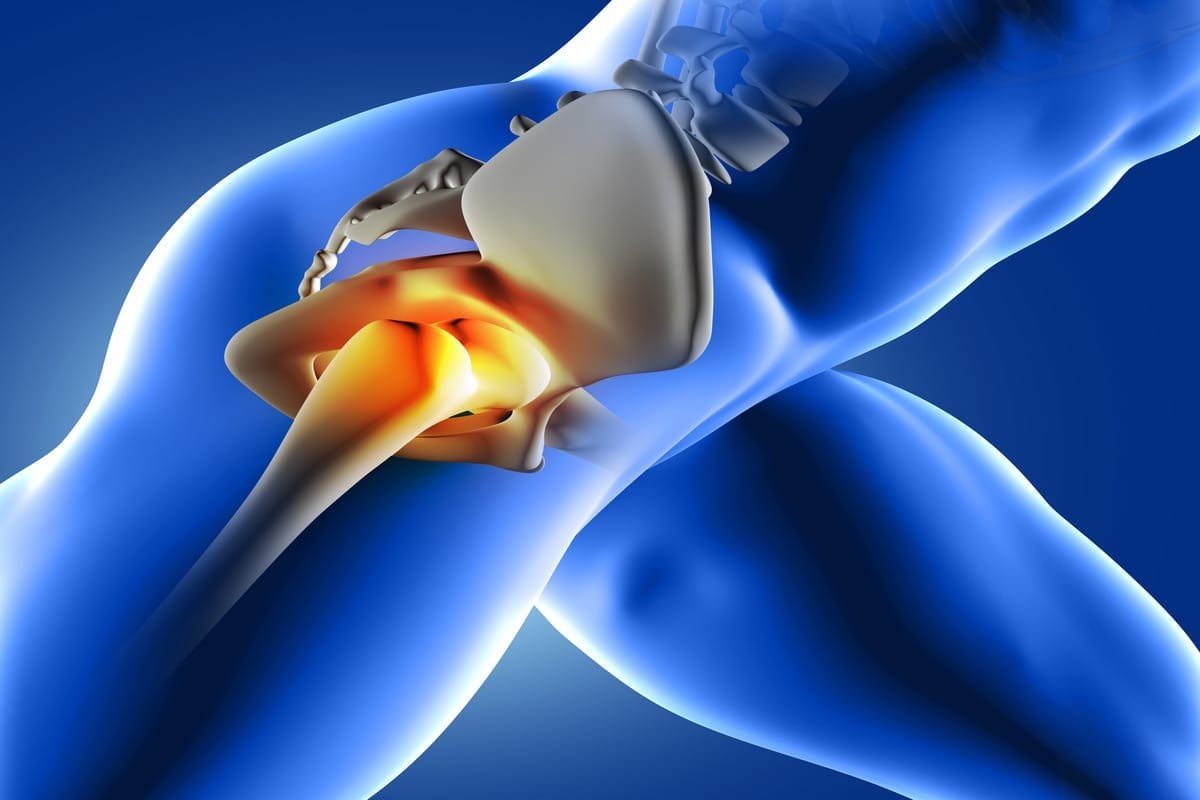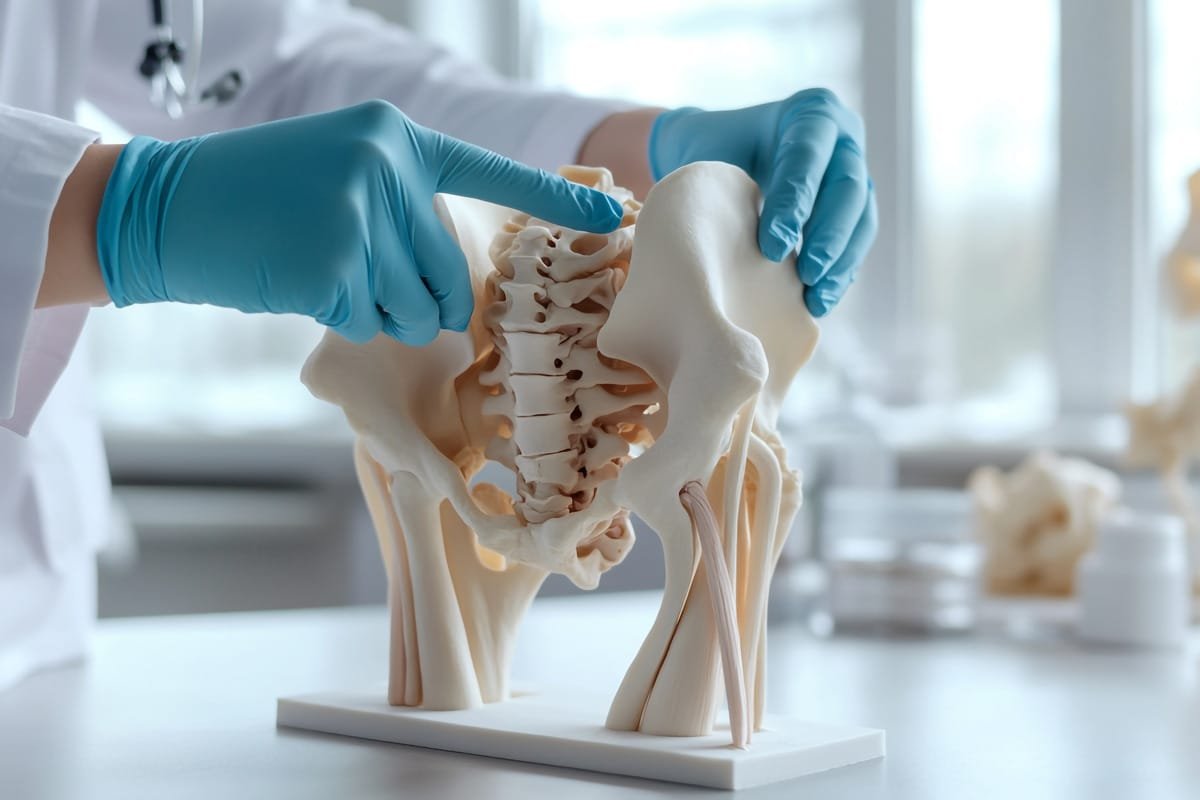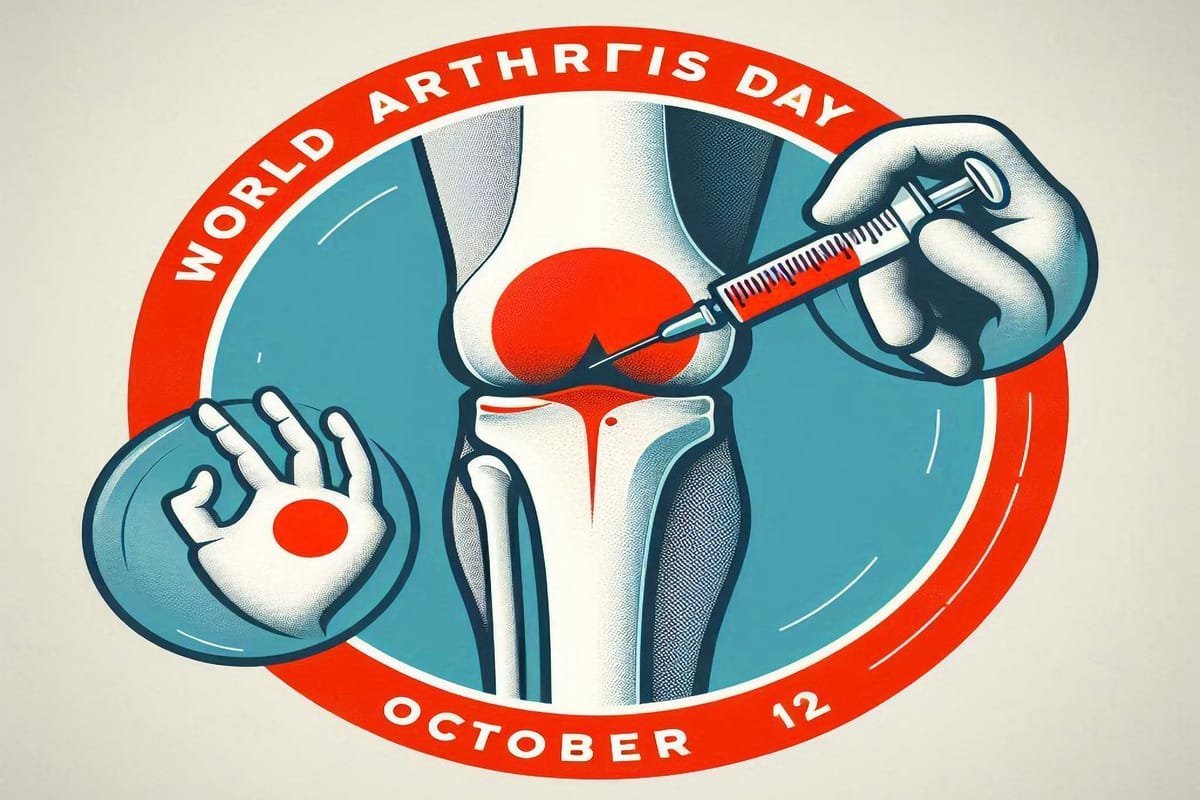
Revision Hip Replacement vs. Primary Hip Replacement: Key Differences
September 15, 2025Hip replacement surgery has become one of the most successful procedures in modern orthopaedics, helping millions of people worldwide regain mobility, reduce pain, and return to normal life. However, not all hip replacement surgeries are the same. While many patients undergo a Primary Hip Replacement as their first surgery, others may require a Revision Hip Replacement later in life if the original implant fails or develops complications.
Although both procedures aim to restore hip function, there are important differences in terms of purpose, complexity, recovery, and outcomes. Understanding these distinctions can help patients and families make informed decisions about treatment.
In this blog, we will explore the key differences between revision hip replacement and primary hip replacement and explain why choosing the right surgeon—like Dr. Deepak Mishra, the best orthopedic doctor in Faridabad—is crucial for successful outcomes.
What Is a Primary Hip Replacement?
A Primary Hip Replacement (also called Total Hip Arthroplasty) is the first-time surgery performed to replace a damaged hip joint. It is typically recommended for patients suffering from:
- Advanced osteoarthritis
- Rheumatoid arthritis
- Severe hip fractures
- Avascular necrosis (bone death due to poor blood supply)
- Other degenerative hip conditions
In this procedure:
- The femoral head (ball) and the acetabulum (socket) of the hip joint are replaced with artificial implants made of metal, ceramic, or high-grade plastic.
- The surgery relieves pain, restores mobility, and allows patients to return to their daily activities.
A primary hip replacement is generally considered straightforward, with high success rates and long-term durability.
What Is a Revision Hip Replacement?
A Revision Hip Replacement is a corrective surgery performed when a previous hip replacement fails or develops complications. It involves removing the old implant (or parts of it) and replacing it with a new one.
Common reasons for revision hip replacement include:
- Implant wear and tear (after 15–20 years of use)
- Implant loosening from the surrounding bone
- Infection around the artificial joint
- Recurrent dislocation of the hip joint
- Fractures around the implant after accidents or falls
- Bone loss caused by implant failure or disease
Revision surgeries are more complex than primary surgeries and require advanced expertise and specialized implants.
Key Differences Between Primary and Revision Hip Replacement
1. Purpose of Surgery
- Primary Hip Replacement: Performed to replace a diseased or damaged hip joint for the first time.
- Revision Hip Replacement: Performed to correct problems from a previous hip replacement and restore function.
2. Surgical Complexity
- Primary: Usually more straightforward, with predictable outcomes.
- Revision: More challenging due to scar tissue, bone loss, infection, or removal of old implants. The surgeon must carefully plan and adapt the procedure to each patient’s condition.
3. Duration of Surgery
- Primary: Typically takes 1–2 hours.
- Revision: May take 2–4 hours or longer, depending on the extent of reconstruction required.
4. Bone and Tissue Condition
- Primary: Bone structure is usually intact, allowing for easier implant placement.
- Revision: Bone loss, weakened tissue, or infection often complicate surgery. Sometimes bone grafts are required to rebuild the joint.
5. Implants Used
- Primary: Standard implants designed for first-time replacements.
- Revision: Specialized implants designed to address bone loss, provide extra stability, or fit into complex anatomical conditions.
6. Risk Factors
- Primary: Lower risk of complications; success rates are very high.
- Revision: Higher risk due to complexity, patient age, and medical history. Risks include infection, dislocation, or need for further revision.
7. Recovery Time
- Primary: Patients often begin walking within a few days and recover fully within 3–6 months.
- Revision: Recovery takes longer, sometimes up to a year, as the body adjusts to the new implant and heals from the more invasive surgery.
8. Expected Outcomes
- Primary: Patients usually enjoy long-lasting pain relief and improved mobility.
- Revision: While highly successful, outcomes depend on the complexity of the case, the extent of bone loss, and the patient’s overall health.
9. Longevity of Implants
- Primary: Modern implants last 15–20 years or more.
- Revision: New implants can also last long, but longevity may be slightly reduced due to the already altered bone structure.
10. Cost and Resources
- Primary: Relatively less expensive, shorter hospital stay.
- Revision: More costly due to longer surgery time, specialized implants, and extended rehabilitation.
Which One Is Right for You?
- If you are suffering from arthritis or hip degeneration for the first time, a Primary Hip Replacement is the best option.
- If you already had hip replacement surgery in the past and are now experiencing pain, instability, or implant failure, you may need a Revision Hip Replacement.
Only a qualified orthopedic surgeon can assess your condition through imaging tests, medical history, and physical evaluation to recommend the most suitable approach.
Why Choose Dr. Deepak Mishra for Revision Hip Replacement in Faridabad?
Choosing the right surgeon is critical, especially for complex procedures like revision hip replacement.
Dr. Deepak Mishra, one of the most renowned orthopedic and joint replacement surgeons in Faridabad, is considered the best Revision Hip Replacement surgeon due to his expertise and patient-centric approach.
Here’s why patients trust him:
- Extensive Experience: He has successfully performed hundreds of hip and knee replacements, including highly complex revision cases.
- Advanced Surgical Skills: Dr. Mishra uses cutting-edge techniques and specialized implants to ensure stability and long-term results.
- Patient-Focused Care: He provides detailed pre-operative evaluation, personalized treatment plans, and comprehensive rehabilitation support.
- Proven Track Record: Known for high success rates and positive patient outcomes, Dr. Mishra is a trusted name in revision hip replacement surgeries.
Conclusion
Both Primary Hip Replacement and Revision Hip Replacement aim to restore mobility and relieve pain, but they differ greatly in complexity, purpose, and recovery. Primary surgery is a first-time solution for degenerative conditions, while revision surgery is a corrective measure when the original implant fails.
Revision hip replacement is a highly specialized procedure that requires the expertise of an experienced surgeon. With his advanced knowledge, surgical precision, and commitment to patient care, Dr. Deepak Mishra stands out as the best Revision Hip Replacement surgeon in Faridabad.
If you or a loved one is facing complications with a previous hip replacement, consulting Dr. Mishra could be the first step towards regaining a pain-free and active life.
Recent Blogs
-
 Post Operative Exercises
Post Operative Exercises- 1, March 2026
-
 After ACL Surgery When Can I Walk?
After ACL Surgery When Can I Walk?- 1, March 2026
-
 What Happens If Knee Arthritis Is Left Untreated?
What Happens If Knee Arthritis Is Left Untreated?- 21, February 2026
-
 Can Knee Replacement Fail? Causes, Signs & Prevention
Can Knee Replacement Fail? Causes, Signs & Prevention- 21, February 2026
-
 Who Is Not Suitable for Knee Replacement Surgery?
Who Is Not Suitable for Knee Replacement Surgery?- 12, February 2026
-
 Best Meniscus Injury Surgeon in Faridabad
Best Meniscus Injury Surgeon in Faridabad- 9, February 2026
-
 How Obesity Affects Knee Health & When to Consider Knee Replacement
How Obesity Affects Knee Health & When to Consider Knee Replacement- 6, February 2026
-
 Knee Pain After Sitting for Long Hours – What to Do
Knee Pain After Sitting for Long Hours – What to Do- 3, February 2026
-
 Most Common Sports Injuries and How to Prevent Them
Most Common Sports Injuries and How to Prevent Them- 26, January 2026
-
 Walking, Stairs & Daily Activities After Knee Replacement
Walking, Stairs & Daily Activities After Knee Replacement- 22, January 2026
-
 When Knee Pain Needs Medical Attention: Red Flags to Watch
When Knee Pain Needs Medical Attention: Red Flags to Watch- 19, January 2026
-
 Cartilage Damage in Sports: Early Signs Athletes Should Not Ignore
Cartilage Damage in Sports: Early Signs Athletes Should Not Ignore- 15, January 2026
-
 Can You Sit Cross-Legged After Knee Replacement?
Can You Sit Cross-Legged After Knee Replacement?- 13, January 2026
-
 Types of Knee Implants
Types of Knee Implants- 13, January 2026
-
 Special Tests for Knee Osteoarthritis
Special Tests for Knee Osteoarthritis- 7, January 2026
-
 Knee Operation Types: A Comprehensive Guide
Knee Operation Types: A Comprehensive Guide- 7, January 2026
-
 Difference Between Knee Arthritis, Meniscus Tear, and Ligament Injury
Difference Between Knee Arthritis, Meniscus Tear, and Ligament Injury- 30, December 2025
-
 Knee Pain While Walking: When Should You Worry?
Knee Pain While Walking: When Should You Worry?- 30, December 2025
-
 What Happens If Knee Replacement Is Delayed Too Long?
What Happens If Knee Replacement Is Delayed Too Long?- 24, December 2025
-
 How Cartilage Loss Leads to Chronic Knee Pain
How Cartilage Loss Leads to Chronic Knee Pain- 24, December 2025
-
 ACL Tears in Athletes: Symptoms, Treatment Options & Recovery
ACL Tears in Athletes: Symptoms, Treatment Options & Recovery- 19, November 2025
-
 Sports Injuries That Often Lead to Knee Replacement
Sports Injuries That Often Lead to Knee Replacement- 19, November 2025
-
 Orthopedic Care for Elderly Patients — A Complete Guide
Orthopedic Care for Elderly Patients — A Complete Guide- 12, November 2025
-
 How Long Do Knee Implants Last? (10–20 Year Longevity Guide)
How Long Do Knee Implants Last? (10–20 Year Longevity Guide)- 12, November 2025
-
 Importance of Early Diagnosis in Bone and Joint Problems
Importance of Early Diagnosis in Bone and Joint Problems- 28, October 2025
-
 Best Treatment Options for Sports Injuries
Best Treatment Options for Sports Injuries- 28, October 2025
-
 The Difference Between ACL Tear, Sprain, and Rupture
The Difference Between ACL Tear, Sprain, and Rupture- 16, October 2025
-
 Post-ACL Surgery Do’s and Don’ts
Post-ACL Surgery Do’s and Don’ts- 16, October 2025
-
 Early Signs You Might Have an ACL Injury (and When to See a Doctor)
Early Signs You Might Have an ACL Injury (and When to See a Doctor)- 16, October 2025
-
 Does Insurance Cover Robotic Knee Replacement Surgery?
Does Insurance Cover Robotic Knee Replacement Surgery?- 6, October 2025
-
 When Can You Return to Sports After Robotic Knee Replacement?
When Can You Return to Sports After Robotic Knee Replacement?- 6, October 2025
-
 Impact of Obesity on Knee Replacement Surgery and Recovery
Impact of Obesity on Knee Replacement Surgery and Recovery- 30, September 2025
-
 Early vs. Delayed Knee Replacement: Which Is Better?
Early vs. Delayed Knee Replacement: Which Is Better?- 30, September 2025
-
 How Durable Are Knee Implants? A Complete Guide
How Durable Are Knee Implants? A Complete Guide- 24, September 2025
-
 Can You Play Sports After Knee Replacement Surgery?
Can You Play Sports After Knee Replacement Surgery?- 24, September 2025
-
 Key Benefits of Revision Hip Replacement You Should Know
Key Benefits of Revision Hip Replacement You Should Know- 15, September 2025
-
 Revision Hip Replacement vs. Primary Hip Replacement: Key Differences
Revision Hip Replacement vs. Primary Hip Replacement: Key Differences- 15, September 2025
-

-
 Total Knee Replacement Complications: What You Need to Know
Total Knee Replacement Complications: What You Need to Know- 5, September 2025
-
 Can You Play Sports After Hip Replacement Surgery?
Can You Play Sports After Hip Replacement Surgery?- 26, August 2025
-
 Preparing for Knee Replacement: Do’s and Don’ts Before Surgery
Preparing for Knee Replacement: Do’s and Don’ts Before Surgery- 26, August 2025
-

-
 What to Know About Knee Replacement Revision Surgery
What to Know About Knee Replacement Revision Surgery- 18, August 2025
-
 Cost of Hip Replacement in India – What Patients Should Know
Cost of Hip Replacement in India – What Patients Should Know- 11, August 2025
-

-
 Who Is the Best Orthopedic Doctor for Sports Injuries?
Who Is the Best Orthopedic Doctor for Sports Injuries?- 27, July 2025
-
 Success Rate of Robotic Knee Replacement in India
Success Rate of Robotic Knee Replacement in India- 27, July 2025
-
 Why Surgeons Are Switching to Robotic Knee Replacements
Why Surgeons Are Switching to Robotic Knee Replacements- 15, July 2025
-
 Do’s and Don’ts After Knee Replacement Surgery
Do’s and Don’ts After Knee Replacement Surgery- 15, July 2025
-
 Best Robotic Knee Replacement in India
Best Robotic Knee Replacement in India- 7, July 2025
-
 Affordable Robotic Knee Replacement in India
Affordable Robotic Knee Replacement in India- 7, July 2025
-

-

-

-

-

-

-

-
 Orthopedic Meaning, Definition, Types, and More
Orthopedic Meaning, Definition, Types, and More- 6, June 2025
-
 What Are the Most Common Orthopedic Surgeries?
What Are the Most Common Orthopedic Surgeries?- 24, May 2025
-
 What Does an Orthopedic Doctor Do?
What Does an Orthopedic Doctor Do?- 24, May 2025
-

-

-

-
 Best Orthopedic Doctor for Knee Pain in Faridabad
Best Orthopedic Doctor for Knee Pain in Faridabad- 12, May 2025
-
 How to Prevent Knee Pain with Orthopedic Expert Tips
How to Prevent Knee Pain with Orthopedic Expert Tips- 29, April 2025
-

-
 Best Orthopedic Treatment in Faridabad: What You Should Know
Best Orthopedic Treatment in Faridabad: What You Should Know- 29, April 2025
-

-

-
 Best Knee Replacement Surgeon in Mathura
Best Knee Replacement Surgeon in Mathura- 14, April 2025
-
 Best Knee Replacement Surgeon in Hodal
Best Knee Replacement Surgeon in Hodal- 14, April 2025
-
 Best Knee Replacement Surgeon in Palwal
Best Knee Replacement Surgeon in Palwal- 14, April 2025
-

-

-

-
 Benefits of Minimally Invasive Knee Surgery
Benefits of Minimally Invasive Knee Surgery- 24, March 2025
-
 Best knee Replacement Surgeon in India
Best knee Replacement Surgeon in India- 17, March 2025
-

-
 How to Recover Quickly After Knee Replacement Surgery
How to Recover Quickly After Knee Replacement Surgery- 10, March 2025
-

-

-

-
 Minimally Invasive Arthroplasty: Benefits and Recovery Advantages
Minimally Invasive Arthroplasty: Benefits and Recovery Advantages- 24, February 2025
-
 Common Mistakes to Avoid After Joint Replacement Surgery
Common Mistakes to Avoid After Joint Replacement Surgery- 24, February 2025
-
 Choosing the Right Hip Replacement Surgeon: A Comprehensive Guide
Choosing the Right Hip Replacement Surgeon: A Comprehensive Guide- 17, February 2025
-
 Restoring Mobility: The Role of Knee Replacement Doctors
Restoring Mobility: The Role of Knee Replacement Doctors- 17, February 2025
-
 Orthopedic Trauma Care for Athletes
Orthopedic Trauma Care for Athletes- 6, February 2025
-
 Best Doctor for ACL Tear Treatment
Best Doctor for ACL Tear Treatment- 6, February 2025
-
 Best Sports Medicine Doctor for Knee Injuries
Best Sports Medicine Doctor for Knee Injuries- 6, February 2025
-
 Orthopedic Surgeons: 7 Things You Need to Know
Orthopedic Surgeons: 7 Things You Need to Know- 27, January 2025
-
 Best Joint Replacement Surgeon in Greater Faridabad
Best Joint Replacement Surgeon in Greater Faridabad- 27, January 2025
-
 Best Knee Replacement Surgeon in Palwal
Best Knee Replacement Surgeon in Palwal- 20, January 2025
-
 Best Knee Replacement Surgeon in South Delhi
Best Knee Replacement Surgeon in South Delhi- 20, January 2025
-
 Signs You May Need a Knee Replacement: Insights from a Surgeon
Signs You May Need a Knee Replacement: Insights from a Surgeon- 13, January 2025
-
 Restoring Mobility: The Role of Knee Replacement Doctor
Restoring Mobility: The Role of Knee Replacement Doctor- 13, January 2025
-
 Robotic Knee Replacement Surgery in Delhi
Robotic Knee Replacement Surgery in Delhi- 30, December 2024
-
 Robotic Orthopedic Surgery: Revolutionizing Joint Replacement and Repair
Robotic Orthopedic Surgery: Revolutionizing Joint Replacement and Repair- 30, December 2024
-
 Robotic Knee Replacement vs. Traditional Surgery: A Comparative Guide
Robotic Knee Replacement vs. Traditional Surgery: A Comparative Guide- 23, December 2024
-
 How to Make Joints Stronger: A Comprehensive Guide
How to Make Joints Stronger: A Comprehensive Guide- 23, December 2024
-
 Common Knee Conditions and How a Knee Surgeon Can Help
Common Knee Conditions and How a Knee Surgeon Can Help- 16, December 2024
-

-

-
 Orthopedic Surgeons: 7 Things You Need to Know
Orthopedic Surgeons: 7 Things You Need to Know- 6, December 2024
-
 Top 5 Mistakes After Knee Replacement
Top 5 Mistakes After Knee Replacement- 25, November 2024
-
 Advantages and Disadvantages of Robotic Knee Replacement
Advantages and Disadvantages of Robotic Knee Replacement- 25, November 2024
-
 When to See an Orthopedic Specialist: Recognizing Early Signs
When to See an Orthopedic Specialist: Recognizing Early Signs- 15, November 2024
-
 Benefits of Robotic-Assisted Knee Replacement Surgery
Benefits of Robotic-Assisted Knee Replacement Surgery- 15, November 2024
-
 Knee Replacement Surgery Cost
Knee Replacement Surgery Cost- 8, November 2024
-
 Best Robotic Knee Replacement Surgeon in Faridabad
Best Robotic Knee Replacement Surgeon in Faridabad- 8, November 2024
-

-
 Knee Replacement Surgery: Types, Benefits, and Recovery Timeline
Knee Replacement Surgery: Types, Benefits, and Recovery Timeline- 28, October 2024
-
 What is Osteoporosis? Symptoms, Causes, and Prevention
What is Osteoporosis? Symptoms, Causes, and Prevention- 21, October 2024
-
 Signs It’s Time for a Knee Replacement: When to Consult a Surgeon
Signs It’s Time for a Knee Replacement: When to Consult a Surgeon- 18, October 2024
-
 Understanding Different Types of Arthritis: Symptoms and Causes
Understanding Different Types of Arthritis: Symptoms and Causes- 11, October 2024
-
 Taking Care After Knee Replacement Surgery
Taking Care After Knee Replacement Surgery- 15, December 2022
-
 Amazing Ways to Get Relief from Arthritis Pain Naturally
Amazing Ways to Get Relief from Arthritis Pain Naturally- 2, December 2022
-

-
 How Does Fat Affect Arthritis?
How Does Fat Affect Arthritis?- 4, November 2022
